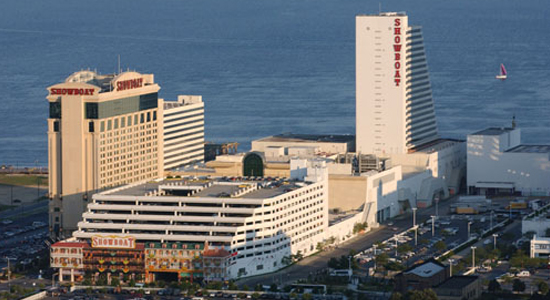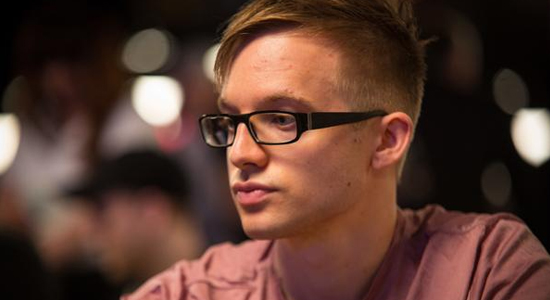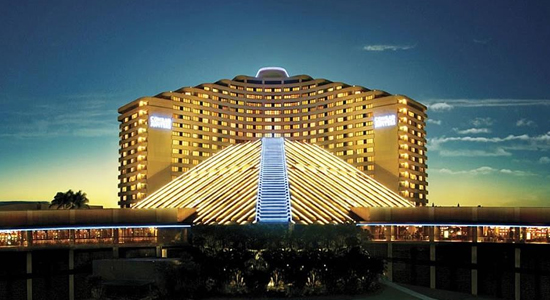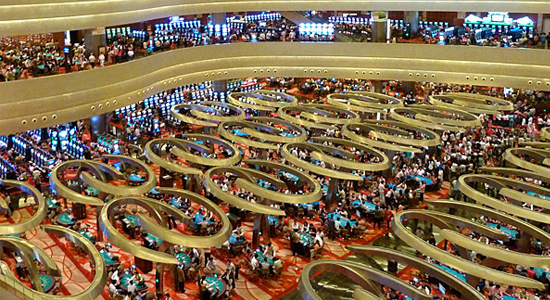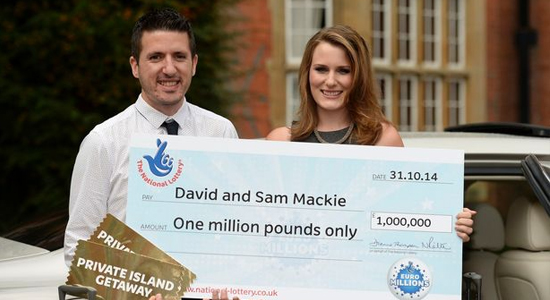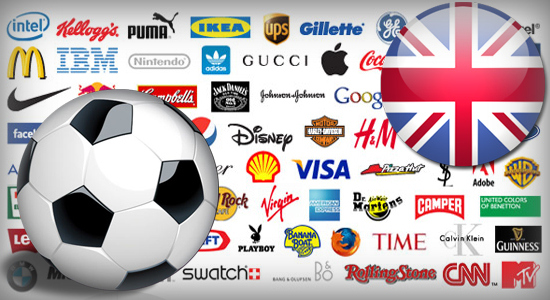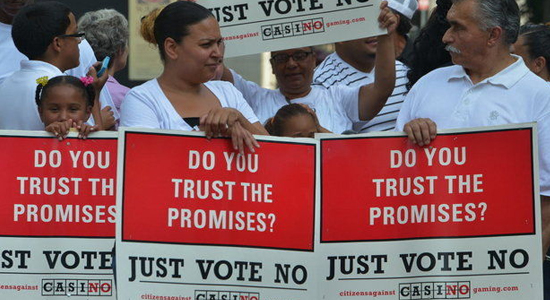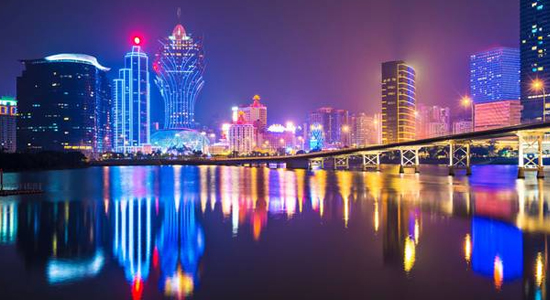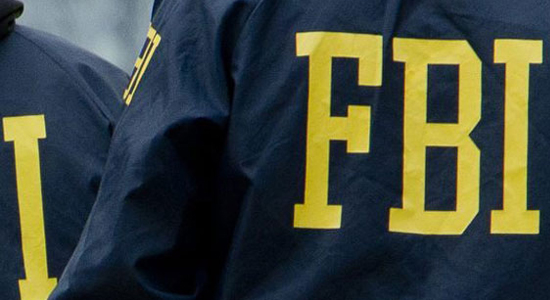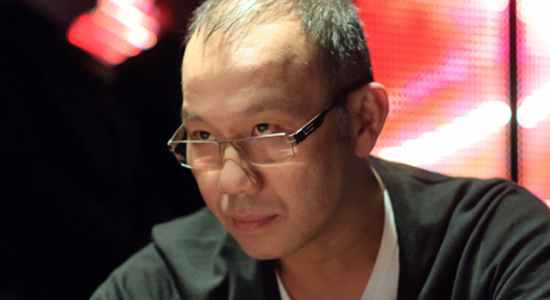Archive for November, 2014
Florida Could Start Selling Lottery Tickets Online

However, the new bill has few details on how the web service would work. New York residents can buy tickets using credit cards; players living in Georgia use a prepaid lottery card system; Illinois limits online purchases to $150 a day and allows winnings to be deposited into an online account. In Florida’s case, these details haven’t been clarified yet.
In support of her proposal, Margolis argued that internet sales would help increase revenue for the lottery, which is among the state’s biggest fundraisers. On the other hand, many fear that stores will take a financial blow if players will be able to conveniently purchase tickets from the comfort of their own homes.
United Press International: Florida Lottery could sell tickets online if bill passes
Last week, Florida State Sen. Gwen Margolis, D-Coconut Grove, introduced a bill proposing that the Sunshine State allow players to purchase lottery tickets online. If the bill is approved, Florida will become the eighth state to legalize online ticket sales.
“[The lottery is] one of the biggest fundraisers we have,” Margolis said. According to the latest gambling news, the Senator believes that legalizing online ticket sales would be much more beneficial for the state than building a casino resort in South Florida. This is a project Las Vegas Sands Corp. has been lobbying for over the past months.
“This way, anybody who wants to buy them can buy them. Expand that instead of having big problems with major gaming in the community,” she affirmed.
Opponents of the bill fear that allowing people to purchase tickets online would create more problems for gambling addicts. Brian Kongsvik, the helpline director of the Florida Council on Compulsive Gambling, says being able to use a line of credit would cause people to lose that sense of pulling money out of their pockets. But Margolis argued that gamblers “like to sit at the table” and enjoy “the social part of it”.
All seven states offering online lottery tickets have their own payment mechanisms. The bill introduced by Margolis doesn’t mention which method would be used in Florida. Bill SB 120 is a one-page proposal stating:
“[The Lottery] shall have the authority to create a program that allows a person who is 18 years of age or older to make an online purchase of a Florida lottery ticket. The department may adopt rules to administer the program.”
Sun Sentinel: Florida Lottery may go online
Florida legislators could make playing the lottery a lot easier if they approve a bill introduced by state Sen. Gwen Margolis, D-Coconut Grove, and allow the lottery to sell tickets online. At present, tickets can only be bought at brick-and-mortar outlets and stores.
The Florida Lottery was founded in 1988, when voters passed a constitutional amendment that authorized the organization two years before. Over the years, lottery sales helped bring in $27 billion for education. Most of that profit was put in a trust fund to be divided up by the state legislature.
The proposal has some people worried about the harmful effects it might have on gambling addicts, but Margolis doesn’t think the online lottery would have a negative impact. Problem gamblers “like to sit at the table,” she said.
Brian Kongsvik, the helpline director of the Florida Council on Compulsive Gambling explained: “With any online gambling, and the potential to use a line of credit, it loses that physical pulling money out of pocket.”
When it comes to legalizing gambling, the organization is neutral. However, Kongsvik fears that making lottery tickets that easily accessible could result in more people needing the help of his organization.
“In theory, there is no doubt about it that some individuals that have a gambling problem, or the potential to develop one, could use credit lines to gamble more than they normally would,” he explained.
Florida Courier: Florida Lottery sales hit record-setting $5.3 billion
As Florida residents become more and more obsessed with scratch cards and lottery tickets, the state lottery reported it had reached record sales of $5.3 billion earlier in July. While part of that profit goes to the state budget and educational programs, the organization spends between $28 million and $30 million on advertising every year.
Even before the Powerball or Mega Millions rollover jackpot spurred sales, the Florida Lottery posted $5.36 billion at its last sales report. The year before that, it was just over $5 billion. About 60% of the money goes to winners, leaving $1.49 billion for the Educational Enhancement Trust Fund.
The increased revenues were generated by a growth in ticket sales. Scratch-off tickets are available in more than 13,000 locations across the state, with prices ranging from $1 to $25. Over the past year, sales went up by 12.7%. The $25 ticket is the most popular one, accounting for $13 million in weekly sales. Powerball sold $469 million, Mega Millions made $167 million and Lotto reached $349 million.
Lottery Deputy Secretary of Sales Tom Delacenserie said: “If we have a $600 million jackpot or $550 million jackpot, we just get out of the way and the sales take off. Last year we didn’t get up that high.”

However, the new bill has few details on how the web service would work. New York residents can buy tickets using credit cards; players living in Georgia use a prepaid lottery card system; Illinois limits online purchases to $150 a day and allows winnings to be deposited into an online account. In Florida’s case, these details haven’t been clarified yet.
In support of her proposal, Margolis argued that internet sales would help increase revenue for the lottery, which is among the state’s biggest fundraisers. On the other hand, many fear that stores will take a financial blow if players will be able to conveniently purchase tickets from the comfort of their own homes.
United Press International: Florida Lottery could sell tickets online if bill passes
Last week, Florida State Sen. Gwen Margolis, D-Coconut Grove, introduced a bill proposing that the Sunshine State allow players to purchase lottery tickets online. If the bill is approved, Florida will become the eighth state to legalize online ticket sales.
“[The lottery is] one of the biggest fundraisers we have,” Margolis said. According to the latest gambling news, the Senator believes that legalizing online ticket sales would be much more beneficial for the state than building a casino resort in South Florida. This is a project Las Vegas Sands Corp. has been lobbying for over the past months.
“This way, anybody who wants to buy them can buy them. Expand that instead of having big problems with major gaming in the community,” she affirmed.
Opponents of the bill fear that allowing people to purchase tickets online would create more problems for gambling addicts. Brian Kongsvik, the helpline director of the Florida Council on Compulsive Gambling, says being able to use a line of credit would cause people to lose that sense of pulling money out of their pockets. But Margolis argued that gamblers “like to sit at the table” and enjoy “the social part of it”.
All seven states offering online lottery tickets have their own payment mechanisms. The bill introduced by Margolis doesn’t mention which method would be used in Florida. Bill SB 120 is a one-page proposal stating:
“[The Lottery] shall have the authority to create a program that allows a person who is 18 years of age or older to make an online purchase of a Florida lottery ticket. The department may adopt rules to administer the program.”
Sun Sentinel: Florida Lottery may go online
Florida legislators could make playing the lottery a lot easier if they approve a bill introduced by state Sen. Gwen Margolis, D-Coconut Grove, and allow the lottery to sell tickets online. At present, tickets can only be bought at brick-and-mortar outlets and stores.
The Florida Lottery was founded in 1988, when voters passed a constitutional amendment that authorized the organization two years before. Over the years, lottery sales helped bring in $27 billion for education. Most of that profit was put in a trust fund to be divided up by the state legislature.
The proposal has some people worried about the harmful effects it might have on gambling addicts, but Margolis doesn’t think the online lottery would have a negative impact. Problem gamblers “like to sit at the table,” she said.
Brian Kongsvik, the helpline director of the Florida Council on Compulsive Gambling explained: “With any online gambling, and the potential to use a line of credit, it loses that physical pulling money out of pocket.”
When it comes to legalizing gambling, the organization is neutral. However, Kongsvik fears that making lottery tickets that easily accessible could result in more people needing the help of his organization.
“In theory, there is no doubt about it that some individuals that have a gambling problem, or the potential to develop one, could use credit lines to gamble more than they normally would,” he explained.
Florida Courier: Florida Lottery sales hit record-setting $5.3 billion
As Florida residents become more and more obsessed with scratch cards and lottery tickets, the state lottery reported it had reached record sales of $5.3 billion earlier in July. While part of that profit goes to the state budget and educational programs, the organization spends between $28 million and $30 million on advertising every year.
Even before the Powerball or Mega Millions rollover jackpot spurred sales, the Florida Lottery posted $5.36 billion at its last sales report. The year before that, it was just over $5 billion. About 60% of the money goes to winners, leaving $1.49 billion for the Educational Enhancement Trust Fund.
The increased revenues were generated by a growth in ticket sales. Scratch-off tickets are available in more than 13,000 locations across the state, with prices ranging from $1 to $25. Over the past year, sales went up by 12.7%. The $25 ticket is the most popular one, accounting for $13 million in weekly sales. Powerball sold $469 million, Mega Millions made $167 million and Lotto reached $349 million.
Lottery Deputy Secretary of Sales Tom Delacenserie said: “If we have a $600 million jackpot or $550 million jackpot, we just get out of the way and the sales take off. Last year we didn’t get up that high.”
Pala Casino off to a Promising Start on New Jersey’s Online Gambling Market

The Pala Band of Mission Indians have become the first tribe to offer internet gambling services in New Jersey, one of the three US states where gambling laws allow players to access online casino games.
The website went live in mid-November, but procedure requires gambling sites to go through a testing phase before becoming fully available. During this period, the service was only open to a limited number of players, for a limited number of hours per day.
Pala Interactive chief marketing officer Jeremy Clemons explained: “Our launch in New Jersey is a huge step for the company, and we want to make sure we’re rolling out one of the best, most user-friendly casino experience on the market.”
The restrictions were gradually lifted over the course of a week and now the new Pala Casino website is in full swing, after having obtained the New Jersey gambling regulator’s permission. For this project, the Pala Band of Mission Indians partnered up with Atlantic City’s Borgata Casino, a company that already holds a license to run such operations in the state.
Jim Ryan, chief executive officer of Pala Interactive, told reporters: “We had a solid weekend and we have yet to start marketing. We believe we are breaking into the New Jersey market at the perfect time.”
Star Tribune: California-based Pala tribe becomes first to launch Internet gambling site in New Jersey
The tribe has entered the New Jersey online gambling market around the same time when the state marked its one year anniversary since its first internet casino went live. There isn’t much to celebrate, however, as New Jersey’s online gambling industry hasn’t produced nearly as much as officials had predicted a year ago.
On November 25, 2013, local authorities announced optimistic projections of $1 billion in the first year alone. Unfortunately, New Jersey’s online casinos have only managed to produce about a tenth of that – $111 million to be more precise,
The tribe operates the Pala Casino and Spa in San Diego County, California, and it created a new branch – Pala Interactive – to expand its services in the virtual realm. Since it doesn’t hold a license to operate casinos in New Jersey, the organization paired up with the Atlantic City-based Borgata Casino, to use its license to operate internet gambling sites in the state.
Furthermore, the tribe has already announced it was planning to launch an online poker site in New Jersey, in the first quarter of 2015.
PokerFuse: Phil Ivey Endorses New Jersey’s Latest Online Casino
In July 2013, Pokerfuse exclusively reported that professional poker player Phil Ivey had signed an agreement to become the brand ambassador for Pala Interactive. The tribe hasn’t had much success in launching a product in California, as the state hasn’t legalized online poker sites yet.
However, since Pala Casino went live in New Jersey, Ivey came out publicly to congratulate welcome the tribe to the state. According to the latest gambling news, the poker player used his Twitter account to encourage followers to “check out” the online casino’s gaming offer.
Owned by the Pala Band of Mission Indians and operated under Borgata’s license, this is the first regulated tribe-run online casino in the US. An internet poker site will follow sometime next year.
Earlier this month, the media speculated that the Pala tribe and Phil Ivey had gone their separate ways because of a disagreement between the poker pro and Borgata. The casino accused him of cheating and even sued him for $9.6 million, claiming that he and his accomplice exploited a flaw on the back of the cards to gain an unfair advantage over the casino, when playing baccarat.
Ivey was involved in a similar scandal with the Crockfords Club Casino in England. This time, it was the poker player who sued the gambling venue, because the company had refused to pay out his $7.7 million winnings. The Crockfords Club argued the same thing – that Ivey had deceived the dealer and won through a technique called “edge sorting”. The court ruled against the poker player.
U-T San Diego: Ringo sets Pala show for 2015
One of the two surviving members of the legendary Beatles, Ringo Starr, has announced a show at the Events Center at Pala Casino, Spa & Resort. The event will take place on March 14, 2015. The star will be celebrating his 75th birthday next year.
This will be the final stop on a 30-day tour where fans can see Starr and his All Starr Band. The event will take them through five Southern states, Puerto Rico, Brazil, the Dominican Republic, Chile, Colombia, Mexico and California.
Tickets for the show at the Pala Casino are priced at $125, $100 and $95. In addition to this event, the band will have concerts on March 12 in Santa Ynez and on March 13 in San Francisco.

The Pala Band of Mission Indians have become the first tribe to offer internet gambling services in New Jersey, one of the three US states where gambling laws allow players to access online casino games.
The website went live in mid-November, but procedure requires gambling sites to go through a testing phase before becoming fully available. During this period, the service was only open to a limited number of players, for a limited number of hours per day.
Pala Interactive chief marketing officer Jeremy Clemons explained: “Our launch in New Jersey is a huge step for the company, and we want to make sure we’re rolling out one of the best, most user-friendly casino experience on the market.”
The restrictions were gradually lifted over the course of a week and now the new Pala Casino website is in full swing, after having obtained the New Jersey gambling regulator’s permission. For this project, the Pala Band of Mission Indians partnered up with Atlantic City’s Borgata Casino, a company that already holds a license to run such operations in the state.
Jim Ryan, chief executive officer of Pala Interactive, told reporters: “We had a solid weekend and we have yet to start marketing. We believe we are breaking into the New Jersey market at the perfect time.”
Star Tribune: California-based Pala tribe becomes first to launch Internet gambling site in New Jersey
The tribe has entered the New Jersey online gambling market around the same time when the state marked its one year anniversary since its first internet casino went live. There isn’t much to celebrate, however, as New Jersey’s online gambling industry hasn’t produced nearly as much as officials had predicted a year ago.
On November 25, 2013, local authorities announced optimistic projections of $1 billion in the first year alone. Unfortunately, New Jersey’s online casinos have only managed to produce about a tenth of that – $111 million to be more precise,
The tribe operates the Pala Casino and Spa in San Diego County, California, and it created a new branch – Pala Interactive – to expand its services in the virtual realm. Since it doesn’t hold a license to operate casinos in New Jersey, the organization paired up with the Atlantic City-based Borgata Casino, to use its license to operate internet gambling sites in the state.
Furthermore, the tribe has already announced it was planning to launch an online poker site in New Jersey, in the first quarter of 2015.
PokerFuse: Phil Ivey Endorses New Jersey’s Latest Online Casino
In July 2013, Pokerfuse exclusively reported that professional poker player Phil Ivey had signed an agreement to become the brand ambassador for Pala Interactive. The tribe hasn’t had much success in launching a product in California, as the state hasn’t legalized online poker sites yet.
However, since Pala Casino went live in New Jersey, Ivey came out publicly to congratulate welcome the tribe to the state. According to the latest gambling news, the poker player used his Twitter account to encourage followers to “check out” the online casino’s gaming offer.
Owned by the Pala Band of Mission Indians and operated under Borgata’s license, this is the first regulated tribe-run online casino in the US. An internet poker site will follow sometime next year.
Earlier this month, the media speculated that the Pala tribe and Phil Ivey had gone their separate ways because of a disagreement between the poker pro and Borgata. The casino accused him of cheating and even sued him for $9.6 million, claiming that he and his accomplice exploited a flaw on the back of the cards to gain an unfair advantage over the casino, when playing baccarat.
Ivey was involved in a similar scandal with the Crockfords Club Casino in England. This time, it was the poker player who sued the gambling venue, because the company had refused to pay out his $7.7 million winnings. The Crockfords Club argued the same thing – that Ivey had deceived the dealer and won through a technique called “edge sorting”. The court ruled against the poker player.
U-T San Diego: Ringo sets Pala show for 2015
One of the two surviving members of the legendary Beatles, Ringo Starr, has announced a show at the Events Center at Pala Casino, Spa & Resort. The event will take place on March 14, 2015. The star will be celebrating his 75th birthday next year.
This will be the final stop on a 30-day tour where fans can see Starr and his All Starr Band. The event will take them through five Southern states, Puerto Rico, Brazil, the Dominican Republic, Chile, Colombia, Mexico and California.
Tickets for the show at the Pala Casino are priced at $125, $100 and $95. In addition to this event, the band will have concerts on March 12 in Santa Ynez and on March 13 in San Francisco.
PwC Predicts Tough Times for South African Gambling Industry
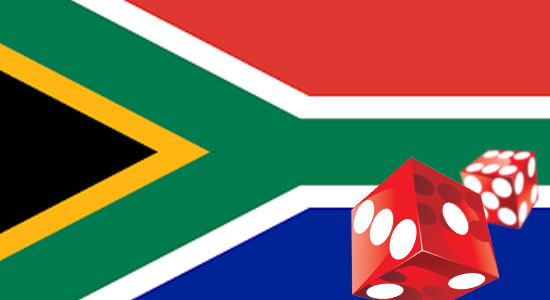
From a financial point of view, South Africa’s casinos are doing very well. As the most popular form of gambling in the country, these businesses are raking in as much as R17 billion every year. But while the land-based casino industry is still the most profitable, competition is getting heated as other forms of gambling are growing at a rapid rate.
This week, accounting firm PwC released a detailed report on how the gambling industry could evolve in the following few years. The document takes a closer look at casinos in South Africa, Nigeria and Kenya and speculates on the trends the industry could follow between this year and 2018.
PwC’s predictions are not too optimistic. As the country’s economy is slowing down, its gambling market will face the same slowdown, the accounting firm said.
BusinessDay: Bingo and sports betting make inroads into casinos
In its report, PwC studied the growth prospects for casinos, as well as limited payout machines, bingo, sports betting and lottery games in South Africa. The country has 37 land-based casinos, which made a total of R16.5 billion profits last year. The industry has grown on a year-to-year basis, but only by a modest 0.6%.
Last year turnover increased 4%, a drop from the 7.6% growth in the previous year and the smallest profit made since 2009.
“We expect continued slow growth in SA over the next two years,” the accounting company said. “We then look for a pick-up in growth in each country as economic conditions improve. Some casino operators in certain locations believe that the slowdown in 2013 was due in part to growing competition from electronic bingo terminals, limited payout machines and sports betting shops, which are becoming more prevalent,” said the report.
Meanwhile, bingo operations have generated 67.5% increased revenue last year, while limited payout machines grew 17.8% and sports betting by 9.1%. According to online gambling news, bingo is the smallest category, with revenue of just R732 million, but the industry is constantly growing. Sports betting went up 18.5% and horse racing grew 4.6%, and PwC expects sports wagering to overtake horse racing in the next five years.
Charl Faurie, a spokesperson for SA’s Casino Association, said the association does not see alternative forms of legal gambling as a threat. However, illegal gambling operations are having a negative impact on the industry.
“The rapid increase of illegal online gambling is of particular concern to us as we estimate billions of rands are lost in tax revenue per year which has an obvious negative economic effect on the country. Casa is taking specific actions to address this threat beginning with a mass-media awareness campaign which will launch in the next few months,” Faurie said.
GamingZion: Online Gambling Sites in South Africa Could Be Banned
For years, politicians have been discussing changing the country’s gambling laws, as the industry expected them to regulate the online casino market. But recent news said authorities were considering doing the exact opposite: banning internet gambling in South Africa.
In addition to this, the media said lawmakers are also talking about setting limits on the number of electronic bingo machines and forbidding dog races. While these measures are just in the form of a proposal at the moment, if the draft becomes law all hope of having legal online casinos in the country will be lost.
Of course, not all officials agree with the proposal. Geordin Hill-Lewis, Member of Parliament (DA) and Shadow Minister of Trade and Industry believes it will cost the state more to enforce the law, than to legalize internet gambling. But others note that the number of problem gamblers has increased in recent years, and so has the level of indebtedness.
In addition to forbidding online gambling, South Africa authorities want to introduce licenses for the horse racing industry, in hopes that this measure will make gambling less accessible.
CityPress: Davies tackles gambling board’s mismanagement
Trade and Industry Minister Rob Davies suspended members of the National Gambling Board (NGB) on allegations of maladministration, wasteful spending and corrupt activities. The agency’s activities will be investigated by authorities, to find out if the accusations are true.
The board is normally responsible for overseeing the gambling industry and regulating South Africa’s multi-billion-rand market. Davies noted that the suspension was a precautionary measure, after an alleged contravention of the Public Finance Management Act through “failing to prevent irregular, fruitless and wasteful expenditure, and making overdraft on the entity’s bank account without the approval of the minister of finance”.
The board is accused of breaking the National Gambling Act by “allowing members whose term of office had expired to continue participating in the board’s activities and representing the NGB”, and there was a mention of “apparent corrupt activities” regarding the National Central Electronic Monitoring System, as well as “unlawful appointments of staff”.
Members of the board were also accused of intimidation, bullying and getting rid of evidence, which is why Davies decided to suspend them until the investigation is over.

From a financial point of view, South Africa’s casinos are doing very well. As the most popular form of gambling in the country, these businesses are raking in as much as R17 billion every year. But while the land-based casino industry is still the most profitable, competition is getting heated as other forms of gambling are growing at a rapid rate.
This week, accounting firm PwC released a detailed report on how the gambling industry could evolve in the following few years. The document takes a closer look at casinos in South Africa, Nigeria and Kenya and speculates on the trends the industry could follow between this year and 2018.
PwC’s predictions are not too optimistic. As the country’s economy is slowing down, its gambling market will face the same slowdown, the accounting firm said.
BusinessDay: Bingo and sports betting make inroads into casinos
In its report, PwC studied the growth prospects for casinos, as well as limited payout machines, bingo, sports betting and lottery games in South Africa. The country has 37 land-based casinos, which made a total of R16.5 billion profits last year. The industry has grown on a year-to-year basis, but only by a modest 0.6%.
Last year turnover increased 4%, a drop from the 7.6% growth in the previous year and the smallest profit made since 2009.
“We expect continued slow growth in SA over the next two years,” the accounting company said. “We then look for a pick-up in growth in each country as economic conditions improve. Some casino operators in certain locations believe that the slowdown in 2013 was due in part to growing competition from electronic bingo terminals, limited payout machines and sports betting shops, which are becoming more prevalent,” said the report.
Meanwhile, bingo operations have generated 67.5% increased revenue last year, while limited payout machines grew 17.8% and sports betting by 9.1%. According to online gambling news, bingo is the smallest category, with revenue of just R732 million, but the industry is constantly growing. Sports betting went up 18.5% and horse racing grew 4.6%, and PwC expects sports wagering to overtake horse racing in the next five years.
Charl Faurie, a spokesperson for SA’s Casino Association, said the association does not see alternative forms of legal gambling as a threat. However, illegal gambling operations are having a negative impact on the industry.
“The rapid increase of illegal online gambling is of particular concern to us as we estimate billions of rands are lost in tax revenue per year which has an obvious negative economic effect on the country. Casa is taking specific actions to address this threat beginning with a mass-media awareness campaign which will launch in the next few months,” Faurie said.
GamingZion: Online Gambling Sites in South Africa Could Be Banned
For years, politicians have been discussing changing the country’s gambling laws, as the industry expected them to regulate the online casino market. But recent news said authorities were considering doing the exact opposite: banning internet gambling in South Africa.
In addition to this, the media said lawmakers are also talking about setting limits on the number of electronic bingo machines and forbidding dog races. While these measures are just in the form of a proposal at the moment, if the draft becomes law all hope of having legal online casinos in the country will be lost.
Of course, not all officials agree with the proposal. Geordin Hill-Lewis, Member of Parliament (DA) and Shadow Minister of Trade and Industry believes it will cost the state more to enforce the law, than to legalize internet gambling. But others note that the number of problem gamblers has increased in recent years, and so has the level of indebtedness.
In addition to forbidding online gambling, South Africa authorities want to introduce licenses for the horse racing industry, in hopes that this measure will make gambling less accessible.
CityPress: Davies tackles gambling board’s mismanagement
Trade and Industry Minister Rob Davies suspended members of the National Gambling Board (NGB) on allegations of maladministration, wasteful spending and corrupt activities. The agency’s activities will be investigated by authorities, to find out if the accusations are true.
The board is normally responsible for overseeing the gambling industry and regulating South Africa’s multi-billion-rand market. Davies noted that the suspension was a precautionary measure, after an alleged contravention of the Public Finance Management Act through “failing to prevent irregular, fruitless and wasteful expenditure, and making overdraft on the entity’s bank account without the approval of the minister of finance”.
The board is accused of breaking the National Gambling Act by “allowing members whose term of office had expired to continue participating in the board’s activities and representing the NGB”, and there was a mention of “apparent corrupt activities” regarding the National Central Electronic Monitoring System, as well as “unlawful appointments of staff”.
Members of the board were also accused of intimidation, bullying and getting rid of evidence, which is why Davies decided to suspend them until the investigation is over.
Court Puts New Jersey Sports Betting on Hold
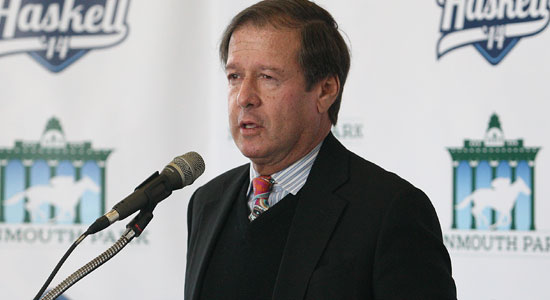
A federal judge intervened to temporarily block New Jersey’s plans to allow sports betting at the state’s racetrack and casinos.
State lawmakers have been trying to find ways to bring sports betting to New Jersey for years, but it looks like all attempts are destined to fail. A few weeks ago, officials passed a bill allowing licensed casinos and racetracks to accept wagers.
After Governor Chris Christie signed the document into law and Monmouth Park said it was ready to start taking bets last Sunday, professional sports leagues challenged the decision in court, asking the judge to issue a temporary restraining order to prevent this from happening.
U.S. District Judge Michael Shipp decided to grant the request made by the National Football League, the National Collegiate Athletic Association and other sports groups, but did not rule on the merits of the issue yet. A full hearing will be scheduled in the future.
A spokesman for Christie emphasized that the restraining order is temporary and added: “We continue to have full confidence in the strength and appropriateness of our position as we move forward in the litigation.”
USA Today: Judge: New Jersey can’t launch sports betting
Latest gambling news announce that a federal judge decided not to allow casinos and racetracks in New Jersey to start taking sports bets. In his ruling late Friday, US District Court Judge Michael Shipp put in place a temporary restraining order to prevent state operators from offering such services last week.
Monmouth Park was planning on giving its bookmaking operations a test run on Sunday, when it would have accepted bets on NFL games, but the court said Governor Chris Christie can’t launch sports betting in the state for now.
Monmouth Park officials were expecting about 10,000 people to rush to the track this Sunday to bet on Jets-Bills, Eagles-Cardinals, as well as on other NFL games. The track was going to open as early as 7 am, in order to allow visitors to place wagers on the Lions-Falcons game played in London at 9:30 am E.T.
But the NFL and other American sports leagues have filed a complaint asking the judge to stop state operators from taking bets immediately, invoking a 1992 federal law restricting sports betting to Nevada, Delaware, Oregon, and Montana.
A final decision will be made only after a full hearing, but for now the judge has issued a restraining order stopping Monmouth Park from going ahead with its plans. Attorneys representing the racetrack have argued that the business won’t survive without this new source of revenue.
NESN: Judge Grants Leagues’ Request, Stops N.J. Sports Betting Temporarily
Following a request from four major professional sports leagues and the NCAA, a federal judge issued a restraining order preventing New Jersey operators from taking sports bets for now. The request was made by the NFL, the NBA, the NHL, Major League Baseball and the NCAA, who went to court over a new bill signed by Governor Chris Christie, allowing casinos and racetracks in the state to offer betting services.
Under current gambling laws, Nevada is the only state allowed to offer betting on individual games at local bookmakers. Delaware also offers multi-game parlay pools, requiring players to pick several games correctly before winning any money.
“More legal gambling leads to more total gambling, which in turns leads to an increased incentive to fix plaintiffs’ matches,” Shipp said in court last Friday, adding that sports betting in New Jersey “would engender the same ills” that lawmakers sought to combat when they came up with the 1992 federal law.
Attorneys representing the sports organizations have argued that the leagues would suffer irreparable harm if such offers were available in the state. The lawsuit will proceed and the court will schedule a full hearing, but Shipp said a temporary restraining order was necessary to make sure that the matter is properly debated in court first.
Wall Street Journal: Judge Blocks Bid to Legalize Sports Betting in New Jersey
A previous attempt to overturn the sports betting ban and allow New Jersey players to bet on sports failed, and officials are not sure what will happen next. For now, Nevada continues to remain the only state where sports betting is fully legal. Delaware has a few similar operations, but the state only offers multi-game parlay pools.
While Atlantic City casinos said they would wait for the judge’s decision before starting any bookmaking operations, Monmouth Park Racetrack had originally planned to begin sports betting this weekend. The venue’s plans were put on hold by the restraining order.
Dennis Drazin, the operator of Monmouth Park, wrote in a recent statement: “While we are disappointed not to be able to start this Sunday, we are confident that sports betting will be coming to New Jersey in the very near future.”
While preventing the racetrack from starting its new operations, Judge Shipp also requested the five plaintiffs to put up a $1.7 million bond, to cover New Jersey’s potential revenue losses should the state eventually win the argument. The judge also said the temporary restraining order only applies to sports scores at events run by the four leagues and the NCAA.


A federal judge intervened to temporarily block New Jersey’s plans to allow sports betting at the state’s racetrack and casinos.
State lawmakers have been trying to find ways to bring sports betting to New Jersey for years, but it looks like all attempts are destined to fail. A few weeks ago, officials passed a bill allowing licensed casinos and racetracks to accept wagers.
After Governor Chris Christie signed the document into law and Monmouth Park said it was ready to start taking bets last Sunday, professional sports leagues challenged the decision in court, asking the judge to issue a temporary restraining order to prevent this from happening.
U.S. District Judge Michael Shipp decided to grant the request made by the National Football League, the National Collegiate Athletic Association and other sports groups, but did not rule on the merits of the issue yet. A full hearing will be scheduled in the future.
A spokesman for Christie emphasized that the restraining order is temporary and added: “We continue to have full confidence in the strength and appropriateness of our position as we move forward in the litigation.”
USA Today: Judge: New Jersey can’t launch sports betting
Latest gambling news announce that a federal judge decided not to allow casinos and racetracks in New Jersey to start taking sports bets. In his ruling late Friday, US District Court Judge Michael Shipp put in place a temporary restraining order to prevent state operators from offering such services last week.
Monmouth Park was planning on giving its bookmaking operations a test run on Sunday, when it would have accepted bets on NFL games, but the court said Governor Chris Christie can’t launch sports betting in the state for now.
Monmouth Park officials were expecting about 10,000 people to rush to the track this Sunday to bet on Jets-Bills, Eagles-Cardinals, as well as on other NFL games. The track was going to open as early as 7 am, in order to allow visitors to place wagers on the Lions-Falcons game played in London at 9:30 am E.T.
But the NFL and other American sports leagues have filed a complaint asking the judge to stop state operators from taking bets immediately, invoking a 1992 federal law restricting sports betting to Nevada, Delaware, Oregon, and Montana.
A final decision will be made only after a full hearing, but for now the judge has issued a restraining order stopping Monmouth Park from going ahead with its plans. Attorneys representing the racetrack have argued that the business won’t survive without this new source of revenue.
NESN: Judge Grants Leagues’ Request, Stops N.J. Sports Betting Temporarily
Following a request from four major professional sports leagues and the NCAA, a federal judge issued a restraining order preventing New Jersey operators from taking sports bets for now. The request was made by the NFL, the NBA, the NHL, Major League Baseball and the NCAA, who went to court over a new bill signed by Governor Chris Christie, allowing casinos and racetracks in the state to offer betting services.
Under current gambling laws, Nevada is the only state allowed to offer betting on individual games at local bookmakers. Delaware also offers multi-game parlay pools, requiring players to pick several games correctly before winning any money.
“More legal gambling leads to more total gambling, which in turns leads to an increased incentive to fix plaintiffs’ matches,” Shipp said in court last Friday, adding that sports betting in New Jersey “would engender the same ills” that lawmakers sought to combat when they came up with the 1992 federal law.
Attorneys representing the sports organizations have argued that the leagues would suffer irreparable harm if such offers were available in the state. The lawsuit will proceed and the court will schedule a full hearing, but Shipp said a temporary restraining order was necessary to make sure that the matter is properly debated in court first.
Wall Street Journal: Judge Blocks Bid to Legalize Sports Betting in New Jersey
A previous attempt to overturn the sports betting ban and allow New Jersey players to bet on sports failed, and officials are not sure what will happen next. For now, Nevada continues to remain the only state where sports betting is fully legal. Delaware has a few similar operations, but the state only offers multi-game parlay pools.
While Atlantic City casinos said they would wait for the judge’s decision before starting any bookmaking operations, Monmouth Park Racetrack had originally planned to begin sports betting this weekend. The venue’s plans were put on hold by the restraining order.
Dennis Drazin, the operator of Monmouth Park, wrote in a recent statement: “While we are disappointed not to be able to start this Sunday, we are confident that sports betting will be coming to New Jersey in the very near future.”
While preventing the racetrack from starting its new operations, Judge Shipp also requested the five plaintiffs to put up a $1.7 million bond, to cover New Jersey’s potential revenue losses should the state eventually win the argument. The judge also said the temporary restraining order only applies to sports scores at events run by the four leagues and the NCAA.

The week in pictures: November 11th – November 17th, 2014
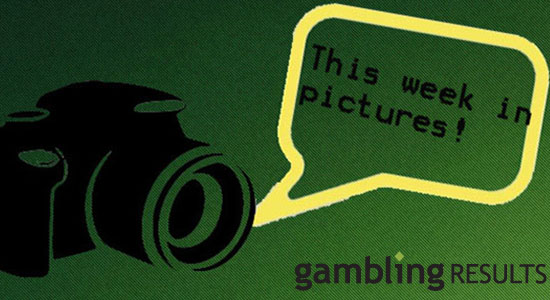
The world last week was a place of excitement and disaster so lets look back at some of the big stories that hit the headlines
Quatar was cleared of allegations of wrong doing surrounding their being awarded the 2022 World Cup by FIFA the body that oversees international soccer. Despite a huge number of allegations the report supposedly gave the rich nation in which it’s actually too hot to feasibly play football a clean bill of health although the report itself is not to be published in full and has already been criticized by one of the authors for being misrepresented. UEFA are already threatening to quit FIFA over the scandal.And a scandal is perhaps what the Rosetta project could become as the 1.4 billion Euro adventure into the depths of space managed to get 300 million miles from Earth, catch up with a speeding comet and then crash into it, bounce a few times and dive into one of the few places its solar panels couldn’t recharge its batteries. Still hailed as a huge success by the scientific community it remains to be seen just how much real information will be gleaned from the results.
Of course real information is hard to come by these days and Vladimir Putin seemed a tad disingenuous when he cited a long journey home and a need for sleep as being the reasons behind his leaving the G20 Summit in Australia quite as early as he did. Of course many observers would point to the fact just about every other leader had lambasted him for his attitude and behavior over Ukraine, and that Russia was rapidly becoming isolated on the world stage.
In sports a very disappointed Roger Federer was forced to pull out of the ATP World Tour final versus long term rival Novak Djokovic due to a back injury. Apologizing in person at the O2 Arena in London he said sorry for not being match fit in what was a massive PR disaster for the ATP, and an unfortunately tainted default win for Djokovic who admitted this wasn’t the way he wanted to win the trophy. Will Federer recover his fitness or have we seen the last of the six time ATP champion? Find out on our daily news pages but in the meantime lets have a look back at our headlines from last week.
1. One company’s trash is another company’s treasure. With Echo Group hunting VIP gamblers, the Townsville casino was becoming too insignificant in the whole picture, so the company sold it for $70 million to someone willing to fix it up and revive it.
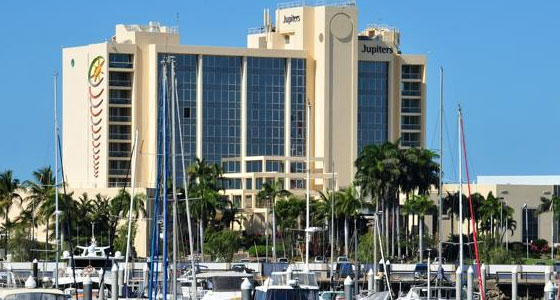
2. After remote gambling operators have taken a major financial blow because of the new license fees and taxes imposed in the UK, the Maltese Government is offering to help heal their bleeding wounds.
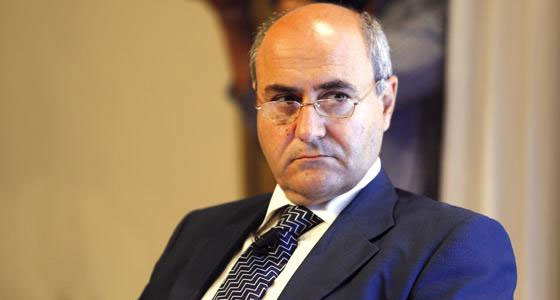
3. A trained chef and poker player, Martin Jacobson has surely figured out the secret recipe for success, because he just won $10 million and his very first gold bracelet at the World Series of Poker.
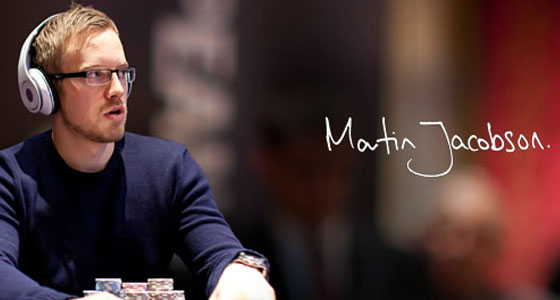
4. It took a long time, but Atlantic City is finally waking up and smelling the coffee. Losing five casinos and leaving thousands of workers unemployed has finally hurt enough to convince officials that it’s time for a change.
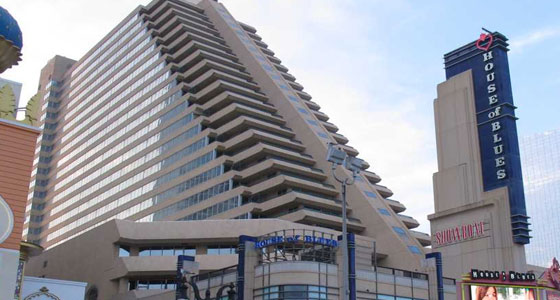
5. One of the largest Asian gambling groups, Genting, is resilient to the general decline on the gambling market.
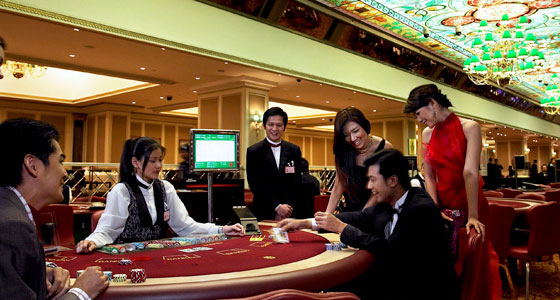
6. The state of Illinois allowed video gaming machines in bars and restaurants and so far the experience has been positive.
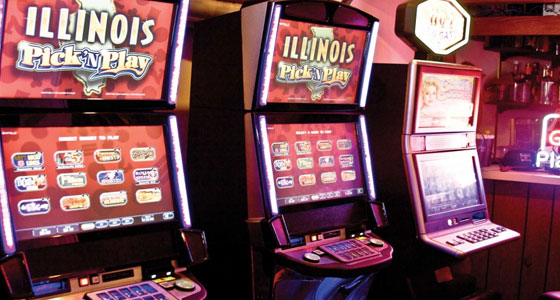
7. New information has been made available in connection to Paul Phua illegal betting ring, which might lead to case dismissal.
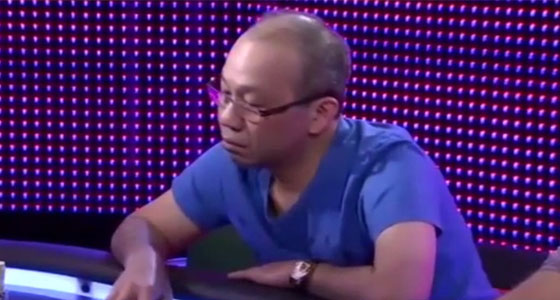
Meanwhile Boko Haran we accused of being behind the suicide bombing that struck a Nigerian school assembly killing 46 and injuring 79 students, an event that made a mockery of government claims to have signed a ceasefire with the Islamic terrorist group, and elsewhere the Dutch have discovered a new outbreak of an even more contagious, and thus dangerous, strain of bird flu that can be transmitted to humans. Will we all end up tarred and feathered? You’ll have to keep up to date with our daily news pages to find out.



The world last week was a place of excitement and disaster so lets look back at some of the big stories that hit the headlines
Quatar was cleared of allegations of wrong doing surrounding their being awarded the 2022 World Cup by FIFA the body that oversees international soccer. Despite a huge number of allegations the report supposedly gave the rich nation in which it’s actually too hot to feasibly play football a clean bill of health although the report itself is not to be published in full and has already been criticized by one of the authors for being misrepresented. UEFA are already threatening to quit FIFA over the scandal.And a scandal is perhaps what the Rosetta project could become as the 1.4 billion Euro adventure into the depths of space managed to get 300 million miles from Earth, catch up with a speeding comet and then crash into it, bounce a few times and dive into one of the few places its solar panels couldn’t recharge its batteries. Still hailed as a huge success by the scientific community it remains to be seen just how much real information will be gleaned from the results.
Of course real information is hard to come by these days and Vladimir Putin seemed a tad disingenuous when he cited a long journey home and a need for sleep as being the reasons behind his leaving the G20 Summit in Australia quite as early as he did. Of course many observers would point to the fact just about every other leader had lambasted him for his attitude and behavior over Ukraine, and that Russia was rapidly becoming isolated on the world stage.
In sports a very disappointed Roger Federer was forced to pull out of the ATP World Tour final versus long term rival Novak Djokovic due to a back injury. Apologizing in person at the O2 Arena in London he said sorry for not being match fit in what was a massive PR disaster for the ATP, and an unfortunately tainted default win for Djokovic who admitted this wasn’t the way he wanted to win the trophy. Will Federer recover his fitness or have we seen the last of the six time ATP champion? Find out on our daily news pages but in the meantime lets have a look back at our headlines from last week.
1. One company’s trash is another company’s treasure. With Echo Group hunting VIP gamblers, the Townsville casino was becoming too insignificant in the whole picture, so the company sold it for $70 million to someone willing to fix it up and revive it.

2. After remote gambling operators have taken a major financial blow because of the new license fees and taxes imposed in the UK, the Maltese Government is offering to help heal their bleeding wounds.

3. A trained chef and poker player, Martin Jacobson has surely figured out the secret recipe for success, because he just won $10 million and his very first gold bracelet at the World Series of Poker.

4. It took a long time, but Atlantic City is finally waking up and smelling the coffee. Losing five casinos and leaving thousands of workers unemployed has finally hurt enough to convince officials that it’s time for a change.

5. One of the largest Asian gambling groups, Genting, is resilient to the general decline on the gambling market.

6. The state of Illinois allowed video gaming machines in bars and restaurants and so far the experience has been positive.

7. New information has been made available in connection to Paul Phua illegal betting ring, which might lead to case dismissal.

Meanwhile Boko Haran we accused of being behind the suicide bombing that struck a Nigerian school assembly killing 46 and injuring 79 students, an event that made a mockery of government claims to have signed a ceasefire with the Islamic terrorist group, and elsewhere the Dutch have discovered a new outbreak of an even more contagious, and thus dangerous, strain of bird flu that can be transmitted to humans. Will we all end up tarred and feathered? You’ll have to keep up to date with our daily news pages to find out.


Former Gambling Resort Opens the Door for Schools and Conference Centers
Atlantic City hasn’t had much luck this year, but authorities are looking for ways to “stop the bleeding” and help the city recover financially.
The former gambling kingdom just can’t catch a break. By the end of this year, Atlantic City may see its fifth casino sink, causing unemployment rates to go up yet again. As the city is suffering from the closures, authorities are looking for a way to bounce back by completely rebuilding it.
There are a number of closed shops and casinos in the city, but if you think about how hard Atlantic City has had it this year, you’ll be quite pleasantly impressed with the amount of new construction here. Right across from the now-bankrupt Trump Plaza, a Bass Pro outdoor goods store will rise over an entire city block.
According to online gambling news, New Jersey’s Casino Reinvestment Development Authority offered land and $12 million in cash to help develop the project which will employ 290 people. Mayor Don Guardian says the city has become too dependent on gambling revenues, but it’s time for a change.
“The city was happy, because it provided decent jobs with benefits and it paid the taxes, but we lost everything else. You lose your whole entrepreneurial spirit,” he said in an interview.
NPR: As Casinos Fold, Stakes Are High For Atlantic City Transformation
Just as Las Vegas did two decades ago, Atlantic City is trying to become less dependent on casino profits and branch out more into entertainment. It’s looking to become a destination for conferences and various events, not just a place where you can gamble.
Caesars Entertainment said it took nine million pounds of steel to build the structure of the new Waterfront Conference Center in Atlantic City, which has received substantial backing from the developer and from the casino reinvestment authority. Rick Mazer, regional president of Caesars Entertainment said: “This is the business that I think will evolve and regrow Atlantic City.”
However, some experts are skeptical of the project’s potential to succeed. Oliver Cooke, an economist at nearby Richard Stockton College of New Jersey, has his doubts. “You simply are not going to consume your way out of the morass that you’re in,” he explained. “Doing things like building more retail, building more convention centers, has a very, very limited upside.”
Meanwhile, authorities are talking about reselling, reopening and repurposing some casinos. Just last week, Stockton College announced it was going to buy the old Showboat property and The Revel’s new owners are allegedly planning to make a new investment and reopen the venue.
But Atlantic City needs more than just commercial projects. Mayor Don Guardian hopes to see new residents move in and rebuild the city. “Then we’ve gotta work on our school system,” he continues. “But I gotta fix the city first, find jobs, get taxes, reduce cost of government, make the place pretty, and then we’ll work on the schools. I like the challenge.”
Washington Times: Taxes, schools, casinos key to Christie AC plan
Atlantic City officials are trying to come up with ways to get the economy up and running again. Governor Chris Christie has commissioned a plan calling for more predictable taxes for casinos, temporarily freezing taxes on non-gambling property and halting payments on employee pension plans, as well as offering more support for schools that reduce costs.
The commission appointed to study Atlantic City’s future prospects has released a set of recommendations, but the governor hasn’t committed himself to anything yet. According to the commission, the city should have an emergency manager holding “extraordinary supervisory powers” over expenses and taxes.
Experts added that Atlantic City should form a public-private development corporation, similar to the one that helped New Brunswick. An essential part of the plan is property tax reform.
“Extraordinary state and local support is required in the transition phase of the Atlantic City revitalization strategy focusing on immediate activities with a high probability of success, including balancing the municipal and school cost structure toward ‘new normal,’” panel Chairman Jon Hanson wrote.
The report said: “High effective rates and a rapidly declining tax base have created an immense financial burden for residents, local businesses and the casino industry,” the report read. The “entire Atlantic City gaming industry is at risk as each incremental casino closure results in a greater tax increase than revenue increase for the surviving casinos.”
If freed from making pension payments for three years, the city could save up to $71.1 million, while in the same time reducing the need to borrow money. The plan proposes regionalizing the police and fire departments, thus cutting costs by $25 million a year.
The $30 million used by the Atlantic City Alliance to promote the city should be redirected to the new development corporation, ACDevCo, the commission recommended.
Reuters: New Jersey college buys Atlantic City’s closed Showboat casino
The shuttered Showboat Atlantic City gambling resort formerly operated by Caesars Entertainment could be bought by a college in southern New Jersey. The Richard Stockton College wants to transform the 1.4 million square foot property completely, by turning it into a campus.
The building sits on 28 beachfront acres and holds 1,329 hotel rooms. The deal is subject to due diligence checks, but the terms of the contract were not disclosed yet.
Stockton president Herman Saatkamp said: “Our intent is to engage in a project that enhances Stockton’s educational growth, offerings and cost-containment while at the same time brings new educational opportunities to Atlantic City.”
Although the casino resort was still making profit, Caesars closed it in August. The venues was reportedly sacrificed in an attempt to consolidate the city’s deteriorating gaming market.
Caesars CEO Gary Loveman is hopeful that the new agreement could help steer the local economy in a new direction. “The transformation and revitalization of Atlantic City requires the addition of a diverse set of reasons for people to come visit,” he told reporters.
In 2010, Stockton College bought the Seaview Resort in Galloway Township for $20 million. Part of the property is used to house students and train them in hospitality.
Atlantic City hasn’t had much luck this year, but authorities are looking for ways to “stop the bleeding” and help the city recover financially.
The former gambling kingdom just can’t catch a break. By the end of this year, Atlantic City may see its fifth casino sink, causing unemployment rates to go up yet again. As the city is suffering from the closures, authorities are looking for a way to bounce back by completely rebuilding it.
There are a number of closed shops and casinos in the city, but if you think about how hard Atlantic City has had it this year, you’ll be quite pleasantly impressed with the amount of new construction here. Right across from the now-bankrupt Trump Plaza, a Bass Pro outdoor goods store will rise over an entire city block.
According to online gambling news, New Jersey’s Casino Reinvestment Development Authority offered land and $12 million in cash to help develop the project which will employ 290 people. Mayor Don Guardian says the city has become too dependent on gambling revenues, but it’s time for a change.
“The city was happy, because it provided decent jobs with benefits and it paid the taxes, but we lost everything else. You lose your whole entrepreneurial spirit,” he said in an interview.
NPR: As Casinos Fold, Stakes Are High For Atlantic City Transformation
Just as Las Vegas did two decades ago, Atlantic City is trying to become less dependent on casino profits and branch out more into entertainment. It’s looking to become a destination for conferences and various events, not just a place where you can gamble.
Caesars Entertainment said it took nine million pounds of steel to build the structure of the new Waterfront Conference Center in Atlantic City, which has received substantial backing from the developer and from the casino reinvestment authority. Rick Mazer, regional president of Caesars Entertainment said: “This is the business that I think will evolve and regrow Atlantic City.”
However, some experts are skeptical of the project’s potential to succeed. Oliver Cooke, an economist at nearby Richard Stockton College of New Jersey, has his doubts. “You simply are not going to consume your way out of the morass that you’re in,” he explained. “Doing things like building more retail, building more convention centers, has a very, very limited upside.”
Meanwhile, authorities are talking about reselling, reopening and repurposing some casinos. Just last week, Stockton College announced it was going to buy the old Showboat property and The Revel’s new owners are allegedly planning to make a new investment and reopen the venue.
But Atlantic City needs more than just commercial projects. Mayor Don Guardian hopes to see new residents move in and rebuild the city. “Then we’ve gotta work on our school system,” he continues. “But I gotta fix the city first, find jobs, get taxes, reduce cost of government, make the place pretty, and then we’ll work on the schools. I like the challenge.”
Washington Times: Taxes, schools, casinos key to Christie AC plan
Atlantic City officials are trying to come up with ways to get the economy up and running again. Governor Chris Christie has commissioned a plan calling for more predictable taxes for casinos, temporarily freezing taxes on non-gambling property and halting payments on employee pension plans, as well as offering more support for schools that reduce costs.
The commission appointed to study Atlantic City’s future prospects has released a set of recommendations, but the governor hasn’t committed himself to anything yet. According to the commission, the city should have an emergency manager holding “extraordinary supervisory powers” over expenses and taxes.
Experts added that Atlantic City should form a public-private development corporation, similar to the one that helped New Brunswick. An essential part of the plan is property tax reform.
“Extraordinary state and local support is required in the transition phase of the Atlantic City revitalization strategy focusing on immediate activities with a high probability of success, including balancing the municipal and school cost structure toward ‘new normal,’” panel Chairman Jon Hanson wrote.
The report said: “High effective rates and a rapidly declining tax base have created an immense financial burden for residents, local businesses and the casino industry,” the report read. The “entire Atlantic City gaming industry is at risk as each incremental casino closure results in a greater tax increase than revenue increase for the surviving casinos.”
If freed from making pension payments for three years, the city could save up to $71.1 million, while in the same time reducing the need to borrow money. The plan proposes regionalizing the police and fire departments, thus cutting costs by $25 million a year.
The $30 million used by the Atlantic City Alliance to promote the city should be redirected to the new development corporation, ACDevCo, the commission recommended.
Reuters: New Jersey college buys Atlantic City’s closed Showboat casino
The shuttered Showboat Atlantic City gambling resort formerly operated by Caesars Entertainment could be bought by a college in southern New Jersey. The Richard Stockton College wants to transform the 1.4 million square foot property completely, by turning it into a campus.
The building sits on 28 beachfront acres and holds 1,329 hotel rooms. The deal is subject to due diligence checks, but the terms of the contract were not disclosed yet.
Stockton president Herman Saatkamp said: “Our intent is to engage in a project that enhances Stockton’s educational growth, offerings and cost-containment while at the same time brings new educational opportunities to Atlantic City.”
Although the casino resort was still making profit, Caesars closed it in August. The venues was reportedly sacrificed in an attempt to consolidate the city’s deteriorating gaming market.
Caesars CEO Gary Loveman is hopeful that the new agreement could help steer the local economy in a new direction. “The transformation and revitalization of Atlantic City requires the addition of a diverse set of reasons for people to come visit,” he told reporters.
In 2010, Stockton College bought the Seaview Resort in Galloway Township for $20 million. Part of the property is used to house students and train them in hospitality.
Chef Turned Poker Player Wins His First Major Tournament
If you thought amateur poker players don’t have what it takes to win major tournaments, guess again.
When 27 year-old Martin Jacobson made it to the final table at the World Series of Poker 2014, many believed the Swedish poker player just got lucky. To think that he would actually win the tournament seemed unthinkable a few weeks ago, when online gambling news introduced him to the world as a former cook who took a break from his time in the kitchen to give poker a try.
Before participating in the November Nine, he had made it to four final tables and had earned more than $1.2 million. But nothing compares to his latest accomplishment: the $10 million guaranteed prize offered at the World Series of Poker, along with a title coveted even by the industry’s biggest names.
The tournament lasted for more than 81 hours. It took Jacobson 45 hours to oust Norwegian player Felix Stephensenand and win his first gold bracelet. “This is what I played for,” he said, referring to his new $500,000 bracelet. “This is all that mattered to me.”
Bleacher Report: WSOP 2014 Results: Winner, Prize Money for November 9 Main Event Finals
Martin Jacobson was already on the right track to becoming a well-respected poker player, but the $10 million prize and gold bracelet he won at this year’s WSOP will surely boost his career. His outstanding performance was applauded by fellow players and poker fans, as he beat out Jorryt van Hoof and Felix Stephensen on the last day of the main event.
Van Hoof, who entered the game as chip leader, was nearly flawless on Monday night, but he was the first one to go after struggling to make decisions all night. First he lost a massive pot to Stephensen, then he held on for a while, but when blinds were increased to $800,000 and $1.6 million, he started to run out of time. A couple of hands later, he was eliminated.
“I didn’t feel as comfortable out there playing tonight as I was yesterday. I moved to the five seat and the light was bothering me. It seemed brighter there. I had more trouble seeing and focusing,” he explained.
After that, Jacobson had the advantage and did not make any mistakes. Finally, on hand no. 328, he went all in and Stephensen had no option but to call. The Swedish player beat his Norwegian opponent, whose described his second-place result as disappointing.
Independent: World Series of Poker 2014: Martin Jacobsen claims $10m prize after learning the game while training to be a chef
Out of all players who made it to the November Nine, Jacobson was the only one who had won more than $1 million in World Series of Poker career earnings. He did come out second in some cases, but he has never managed to make his way to the top.
“There’s no such thing as a ‘perfect tournament’, but this was close to perfect, maybe,” he said in an interview after the game was over.
Throughout the two days of playing, the young Swedish poker pro kept a calm stillness. He didn’t care for any of the tricks other players use to hide their tells, like wearing sunglasses, a hoodie or a baseball cap.
His main rival, the 24 year-old Norwegian player Felix Stephensen, took home $5.1 million in cash. “It’s disappointing to be so close, but I got really lucky to get this far, and it was a tough final table,” he told reporters.
They defeated Dutch player Jorryt van Hoof, who started out as chip leader and maintained his position at the top throughout most of the game. The 31 year-old poker pro won $3.8 million for third place.
“I enjoyed playing with these guys. We’re going to meet up. And the winner will pay for my dinner,” he said.
GamingZion: Martin Jacobson Cooking Up a Plan to Win the WSOP
Jacobson started developing an interest for poker when he was 18, after his father gave him a poker book as a birthday present. He liked the game from the very beginning, but his real passion was cooking so he studied culinary school to become a world-class chef.
After working as a chef in Stockholm for a while, he decided to take a chance on another offer. But this suddenly fell through, leaving him with little options. So while he was looking for another opportunity to work as a chef, he took up poker.
“I started playing sit-and-gos online, and they were my bread and butter,” he told reporters. “I made some extra money online and [those sit-and-gos] ironically helped prepare me for the steps on PokerStars.”
His first notable result in poker was qualifying for the 2008 World Series of Poker. With $12,000 in his pocket after winning one of the satellites, he wasn’t sure about what to do next: head for Vegas or keep the money?
“I called my mom and asked for her advice,” he told reporters. “She said, ‘Obviously, you are going to Vegas.’ That’s not what I was expecting her to say, but when she did, I definitely decided to go.”
Things didn’t work out for him back in 2008, but since then he started to take the game more seriously. His scores got better and better, he finished second in the PokerStars Sunday Million, then he qualified for the European Poker Tour in London and Budapest. In just one year, he had the chance to be in three major main events.
The WSOP 2014 brought him his first gold bracelet, as well as the respect and admirations of his fellow poker players.

If you thought amateur poker players don’t have what it takes to win major tournaments, guess again.
When 27 year-old Martin Jacobson made it to the final table at the World Series of Poker 2014, many believed the Swedish poker player just got lucky. To think that he would actually win the tournament seemed unthinkable a few weeks ago, when online gambling news introduced him to the world as a former cook who took a break from his time in the kitchen to give poker a try.
Before participating in the November Nine, he had made it to four final tables and had earned more than $1.2 million. But nothing compares to his latest accomplishment: the $10 million guaranteed prize offered at the World Series of Poker, along with a title coveted even by the industry’s biggest names.
The tournament lasted for more than 81 hours. It took Jacobson 45 hours to oust Norwegian player Felix Stephensenand and win his first gold bracelet. “This is what I played for,” he said, referring to his new $500,000 bracelet. “This is all that mattered to me.”
Bleacher Report: WSOP 2014 Results: Winner, Prize Money for November 9 Main Event Finals
Martin Jacobson was already on the right track to becoming a well-respected poker player, but the $10 million prize and gold bracelet he won at this year’s WSOP will surely boost his career. His outstanding performance was applauded by fellow players and poker fans, as he beat out Jorryt van Hoof and Felix Stephensen on the last day of the main event.
Van Hoof, who entered the game as chip leader, was nearly flawless on Monday night, but he was the first one to go after struggling to make decisions all night. First he lost a massive pot to Stephensen, then he held on for a while, but when blinds were increased to $800,000 and $1.6 million, he started to run out of time. A couple of hands later, he was eliminated.
“I didn’t feel as comfortable out there playing tonight as I was yesterday. I moved to the five seat and the light was bothering me. It seemed brighter there. I had more trouble seeing and focusing,” he explained.
After that, Jacobson had the advantage and did not make any mistakes. Finally, on hand no. 328, he went all in and Stephensen had no option but to call. The Swedish player beat his Norwegian opponent, whose described his second-place result as disappointing.
Independent: World Series of Poker 2014: Martin Jacobsen claims $10m prize after learning the game while training to be a chef
Out of all players who made it to the November Nine, Jacobson was the only one who had won more than $1 million in World Series of Poker career earnings. He did come out second in some cases, but he has never managed to make his way to the top.
“There’s no such thing as a ‘perfect tournament’, but this was close to perfect, maybe,” he said in an interview after the game was over.
Throughout the two days of playing, the young Swedish poker pro kept a calm stillness. He didn’t care for any of the tricks other players use to hide their tells, like wearing sunglasses, a hoodie or a baseball cap.
His main rival, the 24 year-old Norwegian player Felix Stephensen, took home $5.1 million in cash. “It’s disappointing to be so close, but I got really lucky to get this far, and it was a tough final table,” he told reporters.
They defeated Dutch player Jorryt van Hoof, who started out as chip leader and maintained his position at the top throughout most of the game. The 31 year-old poker pro won $3.8 million for third place.
“I enjoyed playing with these guys. We’re going to meet up. And the winner will pay for my dinner,” he said.
GamingZion: Martin Jacobson Cooking Up a Plan to Win the WSOP
Jacobson started developing an interest for poker when he was 18, after his father gave him a poker book as a birthday present. He liked the game from the very beginning, but his real passion was cooking so he studied culinary school to become a world-class chef.
After working as a chef in Stockholm for a while, he decided to take a chance on another offer. But this suddenly fell through, leaving him with little options. So while he was looking for another opportunity to work as a chef, he took up poker.
“I started playing sit-and-gos online, and they were my bread and butter,” he told reporters. “I made some extra money online and [those sit-and-gos] ironically helped prepare me for the steps on PokerStars.”
His first notable result in poker was qualifying for the 2008 World Series of Poker. With $12,000 in his pocket after winning one of the satellites, he wasn’t sure about what to do next: head for Vegas or keep the money?
“I called my mom and asked for her advice,” he told reporters. “She said, ‘Obviously, you are going to Vegas.’ That’s not what I was expecting her to say, but when she did, I definitely decided to go.”
Things didn’t work out for him back in 2008, but since then he started to take the game more seriously. His scores got better and better, he finished second in the PokerStars Sunday Million, then he qualified for the European Poker Tour in London and Budapest. In just one year, he had the chance to be in three major main events.
The WSOP 2014 brought him his first gold bracelet, as well as the respect and admirations of his fellow poker players.

Maltese Government Offering Support for Operators Affected by New UK Gambling Laws
Authorities will work together with online gambling companies licensed in Malta, to reduce the impact of Britain’s latest policies.
Now that the new British gambling laws have come into force, imposing an additional license fee and – starting December 1 – a 15% point of consumption tax on overseas operators, authorities in Malta have promised to help reduce the financial blow for locally-licensed gambling companies.
During a seminar organized in preparation for the Malta iGaming Summit, Parliamentary Secretary José Herrera promised that the government will work together with the local internet gaming industry to overcome the challenges that lie ahead.
The British Government has recently introduced new laws for the gambling sector. Overseas companies are now required to obtain a UK licensed if they want to cater to British players. In addition, starting December 1 companies will have to pay more taxes to the UK Government.
Malta Independent: Government ready to help online gaming sector face overseas threats
In his speech, Herrera noted that the Lotteries and Gaming Authority in Malta has improved its ties with its British counterpart, but he added that he was disappointed to hear about the measures imposed by the UK Government.
“In our opinion, such steps may not only go against the principal guarantees of the EU treaties but could also lead to a further fragmentation of the sector, to the detriment of consumers,” he told those present at the seminar.
Nevertheless, the new laws have come into force, so the parliamentary secretary announced that the Government in Malta would strive to protect its gambling industry, even on an international level.
“We are ready to work hand in hand with operators to reduce, as much as we can, the impact that such legislation can have. Malta is proud of the regulations it provides to the sector, through which consumers are protected,” he added.
MaltaChamber.org: Parliamentary Secretary Hon Dr José Herrera assures the Malta Chamber’s Remote Gaming Business Section that Malta will “implement attractive measures to consolidate the industry” to make Malta “the number one jurisdiction in the world”
At a business breakfast hosted by the Remote Gaming Business Section (RGBS) within The Malta Chamber of Commerce, Enterprise and Industry this July, Parliamentary Secretary José Herrera presented a few projects and initiatives of the Remote Gaming Executive Committee.
According to Herrera, 52% of all gaming income in 2013 was generated by the remote betting industry. Online gambling news also reported that the industry accounts for 12% of Malta’s GDP, employing more than 8,000 people. The Parliamentary Secretary said authorities would review the current regulations and introduce changes to make Malta a centre of excellence within the industry.
RGBS Chairman George Debrincat said: “I am delighted that we have been able to create a forum which enables us to have a positive dialogue with all the stakeholders and we are grateful to the Chamber and to Malta Chamber President Mr David Curmi for their support.”
“Our industry is part of the business mainstream in the Maltese Islands, important for jobs and economic contribution as well as for the world-class skills and infrastructures that are naturally attendant with it. For Malta to remain ahead of its counterparts, we all need to pull together, and that is part of what the RGBS is working on.”
Malta Today: Malta staunchly opposed to ‘unnecessary’ regulation of gaming industry
Malta has taken a stand against the new regulations announced by the British Government. In a speech at the EY Gaming Tax Seminar, Parliamentary secretary for competitiveness and economic growth Jose Herrera suggested that the UK’s restrictions on overseas gambling operators are “beyond what is necessary”.
For the past years, British players were free to access any number of licensed gambling sites, whether they were operated from within UK borders or from abroad. But as of November 1, companies that want to cater to local players must obtain an additional licensed from the UK Gambling Commission, pay a new license fee and – from December 1 – pay additional taxes too.
“Malta’s regulation is a strong one, based on years of experience,” Herrera said at the seminar. “We will continue to maintain that restrictions, imposed beyond what is necessary, are contrary to the principles guaranteed by the Treaties of the European Union.
“Malta has always been of the view that such a national approach to an international industry leads to fragmentation of the market, which is ultimately detrimental to the industry itself as well as consumers.
“Malta is doing everything in its power to protect this industry at an international level. We are here to listen to the industry. There must be compliance with established principles and law, but we constantly work to resist moves detrimental to business,” he added.
The Lotteries and Gaming Authority has issued 401 licenses this year, a 25% increase from last year’s 321 permits. The number of registered companies has also increased by 17%, from 220 last year to 258 at present.
The regulator has taken steps to make the licensing process faster. Processing time has been reduced by 50%. A company can now obtain a remote gambling license in about two and a half months.
“Malta is a major player in the global remote gaming industry. Our solid reputation has been instrumental in bringing about growth. And we will continue to be responsive to the needs of the industry,” Herrera maintained.
Authorities will work together with online gambling companies licensed in Malta, to reduce the impact of Britain’s latest policies.
Now that the new British gambling laws have come into force, imposing an additional license fee and – starting December 1 – a 15% point of consumption tax on overseas operators, authorities in Malta have promised to help reduce the financial blow for locally-licensed gambling companies.
During a seminar organized in preparation for the Malta iGaming Summit, Parliamentary Secretary José Herrera promised that the government will work together with the local internet gaming industry to overcome the challenges that lie ahead.
The British Government has recently introduced new laws for the gambling sector. Overseas companies are now required to obtain a UK licensed if they want to cater to British players. In addition, starting December 1 companies will have to pay more taxes to the UK Government.
Malta Independent: Government ready to help online gaming sector face overseas threats
In his speech, Herrera noted that the Lotteries and Gaming Authority in Malta has improved its ties with its British counterpart, but he added that he was disappointed to hear about the measures imposed by the UK Government.
“In our opinion, such steps may not only go against the principal guarantees of the EU treaties but could also lead to a further fragmentation of the sector, to the detriment of consumers,” he told those present at the seminar.
Nevertheless, the new laws have come into force, so the parliamentary secretary announced that the Government in Malta would strive to protect its gambling industry, even on an international level.
“We are ready to work hand in hand with operators to reduce, as much as we can, the impact that such legislation can have. Malta is proud of the regulations it provides to the sector, through which consumers are protected,” he added.
MaltaChamber.org: Parliamentary Secretary Hon Dr José Herrera assures the Malta Chamber’s Remote Gaming Business Section that Malta will “implement attractive measures to consolidate the industry” to make Malta “the number one jurisdiction in the world”
At a business breakfast hosted by the Remote Gaming Business Section (RGBS) within The Malta Chamber of Commerce, Enterprise and Industry this July, Parliamentary Secretary José Herrera presented a few projects and initiatives of the Remote Gaming Executive Committee.
According to Herrera, 52% of all gaming income in 2013 was generated by the remote betting industry. Online gambling news also reported that the industry accounts for 12% of Malta’s GDP, employing more than 8,000 people. The Parliamentary Secretary said authorities would review the current regulations and introduce changes to make Malta a centre of excellence within the industry.
RGBS Chairman George Debrincat said: “I am delighted that we have been able to create a forum which enables us to have a positive dialogue with all the stakeholders and we are grateful to the Chamber and to Malta Chamber President Mr David Curmi for their support.”
“Our industry is part of the business mainstream in the Maltese Islands, important for jobs and economic contribution as well as for the world-class skills and infrastructures that are naturally attendant with it. For Malta to remain ahead of its counterparts, we all need to pull together, and that is part of what the RGBS is working on.”
Malta Today: Malta staunchly opposed to ‘unnecessary’ regulation of gaming industry
Malta has taken a stand against the new regulations announced by the British Government. In a speech at the EY Gaming Tax Seminar, Parliamentary secretary for competitiveness and economic growth Jose Herrera suggested that the UK’s restrictions on overseas gambling operators are “beyond what is necessary”.
For the past years, British players were free to access any number of licensed gambling sites, whether they were operated from within UK borders or from abroad. But as of November 1, companies that want to cater to local players must obtain an additional licensed from the UK Gambling Commission, pay a new license fee and – from December 1 – pay additional taxes too.
“Malta’s regulation is a strong one, based on years of experience,” Herrera said at the seminar. “We will continue to maintain that restrictions, imposed beyond what is necessary, are contrary to the principles guaranteed by the Treaties of the European Union.
“Malta has always been of the view that such a national approach to an international industry leads to fragmentation of the market, which is ultimately detrimental to the industry itself as well as consumers.
“Malta is doing everything in its power to protect this industry at an international level. We are here to listen to the industry. There must be compliance with established principles and law, but we constantly work to resist moves detrimental to business,” he added.
The Lotteries and Gaming Authority has issued 401 licenses this year, a 25% increase from last year’s 321 permits. The number of registered companies has also increased by 17%, from 220 last year to 258 at present.
The regulator has taken steps to make the licensing process faster. Processing time has been reduced by 50%. A company can now obtain a remote gambling license in about two and a half months.
“Malta is a major player in the global remote gaming industry. Our solid reputation has been instrumental in bringing about growth. And we will continue to be responsive to the needs of the industry,” Herrera maintained.
Investor Plans Remake of Townsville Casino
Everyone was wondering why Chris Morris would buy a dying casino, but the businessman has big plans for the Jupiters in Townsville.
Founder of Computershare, Morris told reporters his dream was to create an exciting new package for all tourists to enjoy, and Jupiters will play an important role in his plan.
According to the latest gambling news
, he is looking to get more international tourists to come to the Great Barrier Reef, the Daintree and the outback, by building a small resort complete with a gambling venue.
“Having the casino allows you the cash flow to do other things,” he explained.
Australian gambling companies have been targeting mostly Asian high-rollers and Echo Entertainment and Crown Resorts have even fought over a casino spot in Brisbane and a proposed $8 billion casino project in Cairns.
But Chris Morris is planning on focusing his attention and investing all his efforts in Townsville to draw more locals, not just foreign visitors. There are several direct flights to the regional centre and the businessman plans to take advantage of this.
Business Review Weekly: Why Rich Lister Chris Morris bought ‘worst-performing casino in Australia’
The Business Review Weekly has estimated Morris’ fortune at $700 million. The businessman built a reputation by working in the tech industry. He co-founded ASX-listed share registry business Computershare, but nowadays he’s focusing mostly on tourism.
His tourism and entertainment company, Colonial Leisure Group, owns 15 businesses, including a pubs, a brewery on Margaret River and the Daintree Eco Lodge located in north Queensland. With the Jupiters deal sealed, the total amount invested in Queensland over the past three years reaches $100 million.
In addition to these businesses and properties, Chris Morris recently bought an outback cattle station, Mount Mulligan, and owns Orpheus Island Resort plus a Queensland helicopter charter company.
While he opposes the idea of installing pokies in pubs, Morris says offering these gambling machines in casinos is okay, arguing that “people make a conscious decision to go to casinos.”
The Australian businessman doesn’t have much experience in the gambling industry, but he believes the Jupiters casino has “huge potential”, which is why he brought Brad Morgan on board, who recently ran SkyCity Entertainment’s Darwin casino.
The Australian: CLG pays $70m to snap up Jupiters
The private company owned by Chris Morris, the founder of Computershare, has offered $70 million to buy Echo Entertainment’s Jupiters Townsville casino. The deal was struck through ANZ Corporate Advisory.
The price of the casino equates to 10 times its earnings before interest, tax, depreciation and amortization for the previous financial year. The new buyer is looking to invest money in redeveloping the casino, to make it part of a large-scale integrated resort.
John Redmond, managing director at Echo, said: “Recent performance of Jupiters Townsville has been positive. However, given the scale of operations and the size of the local market, we saw more limited expansion opportunities, and therefore strategic fit, with the group’s other assets.”
The company would make an $8 million pre-tax profit on the $70 million sale.
A statement by Colonial Leisure Group added: “We are excited about the opportunities and synergies this acquisition represents. Combining our extensive expertise in hospitality management and ability to further invest, we will develop Jupiters Townsville Hotel and Casino into a leading regional resort, improving the operational and financial performance of the property.”
MyWealth News: International high rollers drive Echo’s earnings higher
According to a financial report released at the end of October, Echo Entertainment said it expects its normalized earnings before interest, tax, depreciation and amortization (EBITDA) to reach between $245 million and $260 million in the first half of the 2015 financial year. The figure reflects a 31% increase from the previous year.
The current financial year has already brought the company a revenue of $216 million, a 78% rise compared to the previous year within its international VIP rebate business, which was “breaking previous records” according to chief executive Matt Bekier. Between 2010 and 2013, Echo’s VIP business has expanded by 224%.
“The positive trading momentum generated in 2H FY14 continues to prevail. We are experiencing good demand in all properties, especially in domestic electronic gaming,” he said.
But Echo has bigger plans in Australia. Taking advantage of the country’s favorable gambling laws, the company recently submitted a proposal to develop a multi-billion dollar resort at Queen’s Wharf Brisbane. Echo was shortlisted for the location along with rival casino developer Crown Resorts.
“In terms of the Brisbane bid, we can’t yet disclose the details of what we are proposing to build, or the scale of the tourism, economic or job-creation benefits to Queensland,” Bekier said. “But let me assure you that we have put forward a responsible offer that delivers a truly iconic precinct.”
Everyone was wondering why Chris Morris would buy a dying casino, but the businessman has big plans for the Jupiters in Townsville.
Founder of Computershare, Morris told reporters his dream was to create an exciting new package for all tourists to enjoy, and Jupiters will play an important role in his plan.
According to the latest gambling news
, he is looking to get more international tourists to come to the Great Barrier Reef, the Daintree and the outback, by building a small resort complete with a gambling venue.
“Having the casino allows you the cash flow to do other things,” he explained.
Australian gambling companies have been targeting mostly Asian high-rollers and Echo Entertainment and Crown Resorts have even fought over a casino spot in Brisbane and a proposed $8 billion casino project in Cairns.
But Chris Morris is planning on focusing his attention and investing all his efforts in Townsville to draw more locals, not just foreign visitors. There are several direct flights to the regional centre and the businessman plans to take advantage of this.
Business Review Weekly: Why Rich Lister Chris Morris bought ‘worst-performing casino in Australia’
The Business Review Weekly has estimated Morris’ fortune at $700 million. The businessman built a reputation by working in the tech industry. He co-founded ASX-listed share registry business Computershare, but nowadays he’s focusing mostly on tourism.
His tourism and entertainment company, Colonial Leisure Group, owns 15 businesses, including a pubs, a brewery on Margaret River and the Daintree Eco Lodge located in north Queensland. With the Jupiters deal sealed, the total amount invested in Queensland over the past three years reaches $100 million.
In addition to these businesses and properties, Chris Morris recently bought an outback cattle station, Mount Mulligan, and owns Orpheus Island Resort plus a Queensland helicopter charter company.
While he opposes the idea of installing pokies in pubs, Morris says offering these gambling machines in casinos is okay, arguing that “people make a conscious decision to go to casinos.”
The Australian businessman doesn’t have much experience in the gambling industry, but he believes the Jupiters casino has “huge potential”, which is why he brought Brad Morgan on board, who recently ran SkyCity Entertainment’s Darwin casino.
The Australian: CLG pays $70m to snap up Jupiters
The private company owned by Chris Morris, the founder of Computershare, has offered $70 million to buy Echo Entertainment’s Jupiters Townsville casino. The deal was struck through ANZ Corporate Advisory.
The price of the casino equates to 10 times its earnings before interest, tax, depreciation and amortization for the previous financial year. The new buyer is looking to invest money in redeveloping the casino, to make it part of a large-scale integrated resort.
John Redmond, managing director at Echo, said: “Recent performance of Jupiters Townsville has been positive. However, given the scale of operations and the size of the local market, we saw more limited expansion opportunities, and therefore strategic fit, with the group’s other assets.”
The company would make an $8 million pre-tax profit on the $70 million sale.
A statement by Colonial Leisure Group added: “We are excited about the opportunities and synergies this acquisition represents. Combining our extensive expertise in hospitality management and ability to further invest, we will develop Jupiters Townsville Hotel and Casino into a leading regional resort, improving the operational and financial performance of the property.”
MyWealth News: International high rollers drive Echo’s earnings higher
According to a financial report released at the end of October, Echo Entertainment said it expects its normalized earnings before interest, tax, depreciation and amortization (EBITDA) to reach between $245 million and $260 million in the first half of the 2015 financial year. The figure reflects a 31% increase from the previous year.
The current financial year has already brought the company a revenue of $216 million, a 78% rise compared to the previous year within its international VIP rebate business, which was “breaking previous records” according to chief executive Matt Bekier. Between 2010 and 2013, Echo’s VIP business has expanded by 224%.
“The positive trading momentum generated in 2H FY14 continues to prevail. We are experiencing good demand in all properties, especially in domestic electronic gaming,” he said.
But Echo has bigger plans in Australia. Taking advantage of the country’s favorable gambling laws, the company recently submitted a proposal to develop a multi-billion dollar resort at Queen’s Wharf Brisbane. Echo was shortlisted for the location along with rival casino developer Crown Resorts.
“In terms of the Brisbane bid, we can’t yet disclose the details of what we are proposing to build, or the scale of the tourism, economic or job-creation benefits to Queensland,” Bekier said. “But let me assure you that we have put forward a responsible offer that delivers a truly iconic precinct.”
The week in pictures: November 4th – November 10th, 2014

In Berlin Germans celebrated the end of the cold war and the collapse of the Berlin Wall that for so long divided their city. Built by the communist authorities in 1961 to stop people fleeing to the west it collapsed in 1989 in triumphant scenes flashed around the world. To celebrate events were held across the city with 8,000 white balloons released along the length of the wall, only a few miles of which remains, to remember the numerous people who died trying to escape the east during the cold war. The Brandenburg Gate saw the biggest party with Peter Gabriel playing David Bowie’s “Heroes” to a massive crowd.
Massive crowds were not in evidence during the US midterm elections on Tuesday where a scant 36.5% of the voting public bothered to actually vote. This coupled with the Republican stoked unpopularity of President Obama saw the Democratic Party take a decisive beating at the ballot box. As the results rolled in it became apparent there was a lot of work to do before 2016 if they wish to retain the White House. Republicans celebrated their victory and new control over the Senate but insisted they would be working with the President in the final two years of his presidency, a sentiment echoed by Obama. And if you believe that…
Talking of unbelievable the new head of GCHQ, the British equivalent of the NSA, Robert Hannigan has called on tech giants to cooperate more closely with the intelligence services in the fight against extremists and terrorism. Apparently our all having social media sites and the ability to encrypt our communications is making his job a little bit too difficult, which is ironic since most of us only started using encryption after we found out Mr. Hannigan and his friends were listening in on everything we said online. In an almost pleading article for the Financial Times he called for a “mature debate” on privacy, security and civil liberties. Yeah. Good luck with that, Bob.
In sports the Formula 1 drivers championship was still neck and neck as Nico Rosberg and Lewis Hamilton went into the Brazilian Grand Prix. In an action packed race that saw Hamilton spin off at one point, the two Mercedes drivers romped home in first and second place with the German Rosberg winning cutting Hamilton’s championship lead to just 17 points with 50 available in the final race of the season in Abu Dhabi. Who’ll win that and take the season? Find out in our daily news pages but before you do that check out the stories that hit our headlines last week.
1. Apparently, the Chukchansi Gold Resort and Casino is so profitable that two rival groups of the tribe who owns it are fighting over it with guns and firearms, just like in the Wild West.
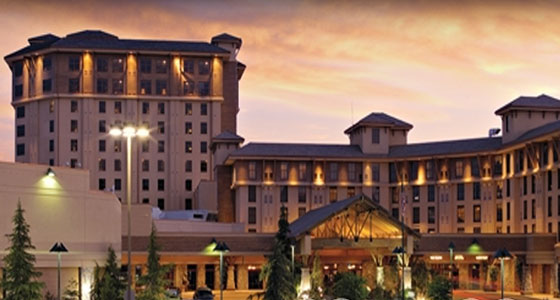
2. Macau is in big trouble. With VIP customers avoiding the gambling hub due to China’s crackdown on corruption, the city’s casinos are posting huge drops in profit.
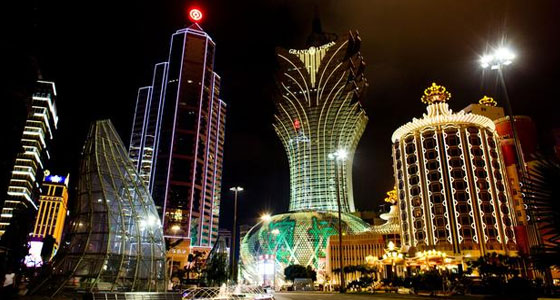
3. After pumping millions into their pro-casino campaign and dangling thousands of jobs in front of Massachusetts voters, Wynn, MGM and Penn National finally got what they wanted: the majority vote allowing them to move ahead with projects in the state.
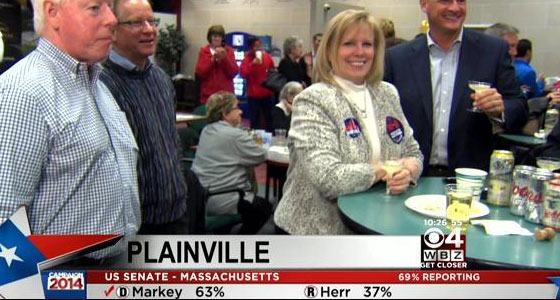
4. As if making online operators pay extra to gain access to British players wasn’t enough, the UK Gambling Commission has also put restrictions on sports sponsorships.
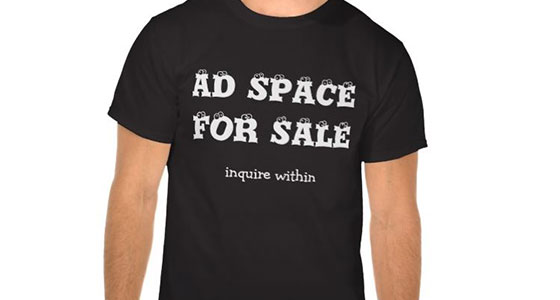
5. Marriage is hard and David and Sam Mackie know it only too well. In two and a half years of marriage, they didn’t even get a chance to go on a honeymoon! Well luck was on their side last week, when they won a trip to Australia and GBP1 million.
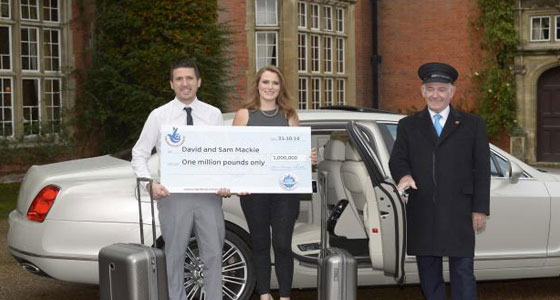
6. After Macau, it is now Singapore’s turn to bleed because of China’s crackdown on corruption, which has chased away VIP customers. While gambling news talk aboutpainful losses in casino revenues, no one is bothering to figure out what these high-rollers are actually hiding from.
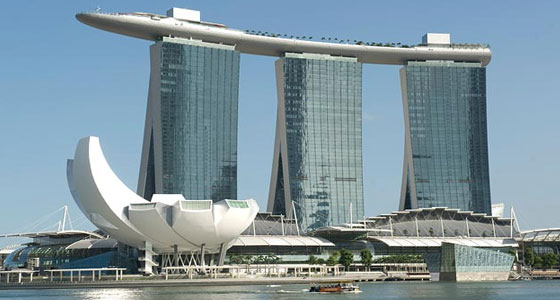
7. Reports suggested that British driver Lewis Hamilton could potentially suffer a similar fate at the Interlagos circuit as in previous years.
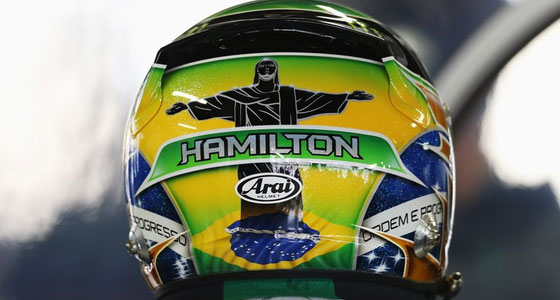
Meanwhile Swedish scientists have shown human stem cells can be used to treat the effects of Parkinson’s Disease with a study displaying an alleviation or reversal of the brain damaged caused. Hailed as a break-through this test on rats may lead to clinical trials on humans by 2017, and last week the drummer from AC/DC was charged with attempting to arrange a murder amongst other things, and whilst those charges were dropped he still faces up to seven years for making threats to kill, a charge his lawyer says will be contested, will he get off? Find out in our daily news pages.



In Berlin Germans celebrated the end of the cold war and the collapse of the Berlin Wall that for so long divided their city. Built by the communist authorities in 1961 to stop people fleeing to the west it collapsed in 1989 in triumphant scenes flashed around the world. To celebrate events were held across the city with 8,000 white balloons released along the length of the wall, only a few miles of which remains, to remember the numerous people who died trying to escape the east during the cold war. The Brandenburg Gate saw the biggest party with Peter Gabriel playing David Bowie’s “Heroes” to a massive crowd.
Massive crowds were not in evidence during the US midterm elections on Tuesday where a scant 36.5% of the voting public bothered to actually vote. This coupled with the Republican stoked unpopularity of President Obama saw the Democratic Party take a decisive beating at the ballot box. As the results rolled in it became apparent there was a lot of work to do before 2016 if they wish to retain the White House. Republicans celebrated their victory and new control over the Senate but insisted they would be working with the President in the final two years of his presidency, a sentiment echoed by Obama. And if you believe that…
Talking of unbelievable the new head of GCHQ, the British equivalent of the NSA, Robert Hannigan has called on tech giants to cooperate more closely with the intelligence services in the fight against extremists and terrorism. Apparently our all having social media sites and the ability to encrypt our communications is making his job a little bit too difficult, which is ironic since most of us only started using encryption after we found out Mr. Hannigan and his friends were listening in on everything we said online. In an almost pleading article for the Financial Times he called for a “mature debate” on privacy, security and civil liberties. Yeah. Good luck with that, Bob.
In sports the Formula 1 drivers championship was still neck and neck as Nico Rosberg and Lewis Hamilton went into the Brazilian Grand Prix. In an action packed race that saw Hamilton spin off at one point, the two Mercedes drivers romped home in first and second place with the German Rosberg winning cutting Hamilton’s championship lead to just 17 points with 50 available in the final race of the season in Abu Dhabi. Who’ll win that and take the season? Find out in our daily news pages but before you do that check out the stories that hit our headlines last week.
1. Apparently, the Chukchansi Gold Resort and Casino is so profitable that two rival groups of the tribe who owns it are fighting over it with guns and firearms, just like in the Wild West.

2. Macau is in big trouble. With VIP customers avoiding the gambling hub due to China’s crackdown on corruption, the city’s casinos are posting huge drops in profit.

3. After pumping millions into their pro-casino campaign and dangling thousands of jobs in front of Massachusetts voters, Wynn, MGM and Penn National finally got what they wanted: the majority vote allowing them to move ahead with projects in the state.

4. As if making online operators pay extra to gain access to British players wasn’t enough, the UK Gambling Commission has also put restrictions on sports sponsorships.

5. Marriage is hard and David and Sam Mackie know it only too well. In two and a half years of marriage, they didn’t even get a chance to go on a honeymoon! Well luck was on their side last week, when they won a trip to Australia and GBP1 million.

6. After Macau, it is now Singapore’s turn to bleed because of China’s crackdown on corruption, which has chased away VIP customers. While gambling news talk aboutpainful losses in casino revenues, no one is bothering to figure out what these high-rollers are actually hiding from.

7. Reports suggested that British driver Lewis Hamilton could potentially suffer a similar fate at the Interlagos circuit as in previous years.

Meanwhile Swedish scientists have shown human stem cells can be used to treat the effects of Parkinson’s Disease with a study displaying an alleviation or reversal of the brain damaged caused. Hailed as a break-through this test on rats may lead to clinical trials on humans by 2017, and last week the drummer from AC/DC was charged with attempting to arrange a murder amongst other things, and whilst those charges were dropped he still faces up to seven years for making threats to kill, a charge his lawyer says will be contested, will he get off? Find out in our daily news pages.


Singapore Casino Revenues Sore as Chinese High-Rollers Lay Low
First, it was Macau that reported decreased gambling revenues due to a shrinking pool of big spenders, and now Singapore is dealing with the same problems.
As Chinese authorities started a campaign to crack down on corruption earlier this year, high-rollers are staying away from casinos. There are two glitzy casino resorts in the country and they both used to have special VIP tables reserved for their most loyal – and most generous – customers. Now they’re both struggling without them and things are beginning to get ugly between the two competitors.
The resorts are run by American casino operator Las Vegas Sands and Malaysia’s Genting Resorts. The former reported a 34% drop in VIP volume at its Marina Bay Sands resort, while the latter is expected to post a similarly painful slide in its third quarter financial report.
When combined, casino profits in Singapore reach $6 billion per year, and big spenders account for about half of this revenue. As gambling laws don’t allow casinos in China, players usually flee to destinations like Macau or Singapore. But in the first half of 2014, the number of Chinese visitors was down 30% to 871,000, and profits followed the same downward trend.
Business Insider: The Battle For Singapore’s Shrinking Pool Of High-Rolling Gamblers Is Getting Ugly
Casino mogul Sheldon Adelson, chief executive of Las Vegas Sands, has accused its rival of offering overly generous incentives and credit to draw high-rollers to its Resorts World Sentosa.
During a company earnings call last month, Adelson said: “Maybe one day, they will get used to competing on the basis of a quality product, if they ever build one, and they won’t have to buy the business.”
Tan Hee Teck, president of Genting Resorts, admitted that the company’s casinos in Singapore will be facing some financial difficulties during the next few months or possibly even longer.
“I suppose some operators may not want to admit it, but at least from our side, we believe that the situation will continue to be quite challenging at least for the next 6 to 12 months,” he said.
Ever since they opened in 2010, these two casinos have been reporting billion-dollar revenues, mostly based on business brought in by Chinese high-rollers, a category of players which came to be vital to the success of these gambling venues.
In a note published on October 31, Fitch Ratings wrote: “Growth in Singapore gaming revenue has stalled, and is likely to contract slightly in 2014 with macroeconomic and political factors in China being the principal cause.”
TheStar: S’pore casinos brace for battle as VIP volumes fall
The two gambling venues in Singapore have been trying to rely less on casino revenue and push to earn more from entertainment, conference facilities, hotels and shopping. But even so, gambling brings in 80% of total profits for both Las Vegas Sands and Genting Resorts. They both boast profit margins of about 50%, the highest in the casino industry.
One way to lure more foreign high-rollers to a casino is to offer credit. With Singaporean players, this strategy doesn’t work because the state has set stricter rules for locals. Sometimes casinos also use commission, a small rebate on the amount of money they’ve spent.
Terence Tay, a former general counsel for Genting Singapore who now runs a consultancy explained: “Credit checks can be very fast for some gamblers – in 15 minutes or so you can probably get approval for US$1mil, and with US$1mil you can still roll up to US$8 or US$9mil.”
This plan sometimes backfires, as credit collection can turn out to be tricky. Singaporean casinos are already waiting on hundreds of millions of dollars to be repaid by gamblers who lost huge amounts of money. And the majority of these players are based overseas, so recovering the cash is even more difficult.
For Genting, “trade and other receivables” – which represents the money owed by customers – has seen a 61% rise since June 2012. In the quarter ending July 2014, player debt stood at S$1.2 billion. Total revenue has increased 7% in the same period.
Vicky Melbourne, head of industrials for South-East Asia and Australasia ratings at Fitch said: “What’s going to be the greater challenge to the Singapore operators, and certainly more longer-term, is that across the region, there’s a lot more political momentum to legalize casinos.”
The Straits Times: Luck running out for Singapore’s two casinos?
Earlier this year, UOB Kay Hian analysts have pointed out that Singapore’s casino market reached saturation in 2012. A year before that, total gaming revenue had reached a record amount of $7.92 billion; after that, it started to decline and went down 8.3% to $7.26 billion in 2012. It wasn’t until last year that casinos have started to recover, but the rebound was modest – just 3%.
Core earnings are also stagnating, with Marina Bay Sands earnings before interest, taxes, depreciation and amortization (EBITDA) coming in at US$1.5 billion in 2013, compared to US$1.4 billion the year before. Net profit was higher during its second quarter, but VIP and mass-market business was declining.
For Genting Singapore, EBITDA dropped from $1.35 billion in 2012 to $1.15 billion in 2013. Analysts concluded the resort has reached its full growth potential. According to online gambling news, this was partially because of the local Government’s heavy regulation of the casino industry, which imposes a $100 entry fee for Singaporean players and punishes companies for marketing their services to locals.
First, it was Macau that reported decreased gambling revenues due to a shrinking pool of big spenders, and now Singapore is dealing with the same problems.
As Chinese authorities started a campaign to crack down on corruption earlier this year, high-rollers are staying away from casinos. There are two glitzy casino resorts in the country and they both used to have special VIP tables reserved for their most loyal – and most generous – customers. Now they’re both struggling without them and things are beginning to get ugly between the two competitors.
The resorts are run by American casino operator Las Vegas Sands and Malaysia’s Genting Resorts. The former reported a 34% drop in VIP volume at its Marina Bay Sands resort, while the latter is expected to post a similarly painful slide in its third quarter financial report.
When combined, casino profits in Singapore reach $6 billion per year, and big spenders account for about half of this revenue. As gambling laws don’t allow casinos in China, players usually flee to destinations like Macau or Singapore. But in the first half of 2014, the number of Chinese visitors was down 30% to 871,000, and profits followed the same downward trend.
Business Insider: The Battle For Singapore’s Shrinking Pool Of High-Rolling Gamblers Is Getting Ugly
Casino mogul Sheldon Adelson, chief executive of Las Vegas Sands, has accused its rival of offering overly generous incentives and credit to draw high-rollers to its Resorts World Sentosa.
During a company earnings call last month, Adelson said: “Maybe one day, they will get used to competing on the basis of a quality product, if they ever build one, and they won’t have to buy the business.”
Tan Hee Teck, president of Genting Resorts, admitted that the company’s casinos in Singapore will be facing some financial difficulties during the next few months or possibly even longer.
“I suppose some operators may not want to admit it, but at least from our side, we believe that the situation will continue to be quite challenging at least for the next 6 to 12 months,” he said.
Ever since they opened in 2010, these two casinos have been reporting billion-dollar revenues, mostly based on business brought in by Chinese high-rollers, a category of players which came to be vital to the success of these gambling venues.
In a note published on October 31, Fitch Ratings wrote: “Growth in Singapore gaming revenue has stalled, and is likely to contract slightly in 2014 with macroeconomic and political factors in China being the principal cause.”
TheStar: S’pore casinos brace for battle as VIP volumes fall
The two gambling venues in Singapore have been trying to rely less on casino revenue and push to earn more from entertainment, conference facilities, hotels and shopping. But even so, gambling brings in 80% of total profits for both Las Vegas Sands and Genting Resorts. They both boast profit margins of about 50%, the highest in the casino industry.
One way to lure more foreign high-rollers to a casino is to offer credit. With Singaporean players, this strategy doesn’t work because the state has set stricter rules for locals. Sometimes casinos also use commission, a small rebate on the amount of money they’ve spent.
Terence Tay, a former general counsel for Genting Singapore who now runs a consultancy explained: “Credit checks can be very fast for some gamblers – in 15 minutes or so you can probably get approval for US$1mil, and with US$1mil you can still roll up to US$8 or US$9mil.”
This plan sometimes backfires, as credit collection can turn out to be tricky. Singaporean casinos are already waiting on hundreds of millions of dollars to be repaid by gamblers who lost huge amounts of money. And the majority of these players are based overseas, so recovering the cash is even more difficult.
For Genting, “trade and other receivables” – which represents the money owed by customers – has seen a 61% rise since June 2012. In the quarter ending July 2014, player debt stood at S$1.2 billion. Total revenue has increased 7% in the same period.
Vicky Melbourne, head of industrials for South-East Asia and Australasia ratings at Fitch said: “What’s going to be the greater challenge to the Singapore operators, and certainly more longer-term, is that across the region, there’s a lot more political momentum to legalize casinos.”
The Straits Times: Luck running out for Singapore’s two casinos?
Earlier this year, UOB Kay Hian analysts have pointed out that Singapore’s casino market reached saturation in 2012. A year before that, total gaming revenue had reached a record amount of $7.92 billion; after that, it started to decline and went down 8.3% to $7.26 billion in 2012. It wasn’t until last year that casinos have started to recover, but the rebound was modest – just 3%.
Core earnings are also stagnating, with Marina Bay Sands earnings before interest, taxes, depreciation and amortization (EBITDA) coming in at US$1.5 billion in 2013, compared to US$1.4 billion the year before. Net profit was higher during its second quarter, but VIP and mass-market business was declining.
For Genting Singapore, EBITDA dropped from $1.35 billion in 2012 to $1.15 billion in 2013. Analysts concluded the resort has reached its full growth potential. According to online gambling news, this was partially because of the local Government’s heavy regulation of the casino industry, which imposes a $100 entry fee for Singaporean players and punishes companies for marketing their services to locals.
Lucky Couple Wins GBP1 Million Lottery Prize and a Trip to Australia
After winning GBP1 million at the lottery, a young couple from Basingstoke will finally get the honeymoon they’ve been dreaming about.
Booking a trip to Australia – that’s the first thing David and Sam Mackie will be spending their lottery winnings on. The couple just won the new EuroMillions Mega Friday draw last week, allowing them to take a much-deserved vacation for the first time since they got married two and a half years ago.
David and Sam, who have two young boys, have already started to plan their trip. Since they got married, they haven’t even had a chance to get away for a honeymoon. They’ve been together five years and their last vacation was a week in Cornwall, but now the pair can finally afford to go somewhere special: to Australia. And since Sam is expecting another baby, they also made plans to buy a new house.
The surprising win comes after a chance purchase, on Halloween. It’s usually Sam who buys the ticket, but this time David opened the computer to find the National Lottery website opened, so he went ahead and entered the EuroMillions draw. According to online gambling news, he received good news the morning after.
ITV: Young couple finally get honeymoon after £1m lotto win
David received an email saying there was good news waiting for him and urging him to check his account. “I usually joke that I am off to check my million when I get the email, but this time I didn’t. I just said to Sam I was off to look at my GBP3,” he said.
He logged on and checked his balance, but it was the same as the day before. In an interview with local reporters, he admitted it took him some time to notice the message which said he had won GBP1 million.
The 32-year-old IT manager said: “This is an amazing opportunity and the more we found out about the trip, the more we realized what a big deal it was. I have been to Australia a couple of times but recently only got abroad for stag weekends. Sam has only ever been on a plane to Leeds, it really is a once in a lifetime chance and I already have the forms to apply for passports for Sam and our boys.”
The pair considered Las Vegas for a honeymoon trip, but since family comes first they didn’t afford it. “We are really family orientated and now being able to share this trip with our children will be even better,” David explained.
David said his wife didn’t believe him when he gave her the good news. She checked the account herself and saw the message was still there, but it wasn’t until they called Camelot – the company authorized to operate the lottery service, under British gambling laws – that it all started to feel real.
Herald Scotland: Delayed honeymoon for lottery pair
A young couple will finally have their honeymoon after winning GPB1 million in the new EuroMillions Mega Friday draw. David and Sam Mackie got married two and a half years ago, but have not even been on a honeymoon or on a trip abroad. The family from Basingstoke, Hampshire will finally be taking a vacation to Australia, together with their two sons.
David, who works as an IT manager, told reporters: “I called my wife but she didn’t believe me. Once she saw my face, and I think I was shaking by this point, she decided to check. We both logged off and back on again to the account and the message was still there. I then had to wait 15 minutes to call Camelot and that was when it started becoming real.”
Mrs. Mackie is currently on maternity leave and the couple will also buy a house for their expanding family. They already signed the paperwork for a new development which they had previously considered, but had been unable to afford until now.
“They had been going quickly and there were only a few plots left. Luckily the one we wanted was still available and we got it. It is amazing to be in that position. I stress about mortgages and money and it is completely life-changing to not to have to worry any longer,” David explained.
Western Daily Press: Euromillions Jackpot: Tickets for new Mega Fridays 25 x £1million prizes and getaways to Makepeace Island released next Friday and last Friday of every month
The National Lottery is launching “mega Fridays”, a new EuroMillions lottery game which will create 25 millionaires. On the last Friday of every month, players will have a shot to win once-in-a-lifetime prize and multiple GBP1 million guaranteed rewards.
In addition to the jackpot prize, the first launch draw will give lucky players the chance to take home one of the 25 available GBP1 million prizes. There is also a private getaway up for grabs, taking the winners themselves and seven other people to Makepeace Island in Australia.
“Next week promises to be hugely exciting for EuroMillions players here in the UK. There’s a chance to win one of 25 guaranteed GBP1 million prizes and we’ll be giving each winner a head start on the millionaire lifestyle with a once in a life time getaway to their own private island,” a National Lottery spokesperson told reporters.
“As well as the chance to win life changing prizes, EuroMillions players also help contribute to the GBP33 million players raise for National Lottery projects every week.”
After winning GBP1 million at the lottery, a young couple from Basingstoke will finally get the honeymoon they’ve been dreaming about.
Booking a trip to Australia – that’s the first thing David and Sam Mackie will be spending their lottery winnings on. The couple just won the new EuroMillions Mega Friday draw last week, allowing them to take a much-deserved vacation for the first time since they got married two and a half years ago.
David and Sam, who have two young boys, have already started to plan their trip. Since they got married, they haven’t even had a chance to get away for a honeymoon. They’ve been together five years and their last vacation was a week in Cornwall, but now the pair can finally afford to go somewhere special: to Australia. And since Sam is expecting another baby, they also made plans to buy a new house.
The surprising win comes after a chance purchase, on Halloween. It’s usually Sam who buys the ticket, but this time David opened the computer to find the National Lottery website opened, so he went ahead and entered the EuroMillions draw. According to online gambling news, he received good news the morning after.
ITV: Young couple finally get honeymoon after £1m lotto win
David received an email saying there was good news waiting for him and urging him to check his account. “I usually joke that I am off to check my million when I get the email, but this time I didn’t. I just said to Sam I was off to look at my GBP3,” he said.
He logged on and checked his balance, but it was the same as the day before. In an interview with local reporters, he admitted it took him some time to notice the message which said he had won GBP1 million.
The 32-year-old IT manager said: “This is an amazing opportunity and the more we found out about the trip, the more we realized what a big deal it was. I have been to Australia a couple of times but recently only got abroad for stag weekends. Sam has only ever been on a plane to Leeds, it really is a once in a lifetime chance and I already have the forms to apply for passports for Sam and our boys.”
The pair considered Las Vegas for a honeymoon trip, but since family comes first they didn’t afford it. “We are really family orientated and now being able to share this trip with our children will be even better,” David explained.
David said his wife didn’t believe him when he gave her the good news. She checked the account herself and saw the message was still there, but it wasn’t until they called Camelot – the company authorized to operate the lottery service, under British gambling laws – that it all started to feel real.
Herald Scotland: Delayed honeymoon for lottery pair
A young couple will finally have their honeymoon after winning GPB1 million in the new EuroMillions Mega Friday draw. David and Sam Mackie got married two and a half years ago, but have not even been on a honeymoon or on a trip abroad. The family from Basingstoke, Hampshire will finally be taking a vacation to Australia, together with their two sons.
David, who works as an IT manager, told reporters: “I called my wife but she didn’t believe me. Once she saw my face, and I think I was shaking by this point, she decided to check. We both logged off and back on again to the account and the message was still there. I then had to wait 15 minutes to call Camelot and that was when it started becoming real.”
Mrs. Mackie is currently on maternity leave and the couple will also buy a house for their expanding family. They already signed the paperwork for a new development which they had previously considered, but had been unable to afford until now.
“They had been going quickly and there were only a few plots left. Luckily the one we wanted was still available and we got it. It is amazing to be in that position. I stress about mortgages and money and it is completely life-changing to not to have to worry any longer,” David explained.
Western Daily Press: Euromillions Jackpot: Tickets for new Mega Fridays 25 x £1million prizes and getaways to Makepeace Island released next Friday and last Friday of every month
The National Lottery is launching “mega Fridays”, a new EuroMillions lottery game which will create 25 millionaires. On the last Friday of every month, players will have a shot to win once-in-a-lifetime prize and multiple GBP1 million guaranteed rewards.
In addition to the jackpot prize, the first launch draw will give lucky players the chance to take home one of the 25 available GBP1 million prizes. There is also a private getaway up for grabs, taking the winners themselves and seven other people to Makepeace Island in Australia.
“Next week promises to be hugely exciting for EuroMillions players here in the UK. There’s a chance to win one of 25 guaranteed GBP1 million prizes and we’ll be giving each winner a head start on the millionaire lifestyle with a once in a life time getaway to their own private island,” a National Lottery spokesperson told reporters.
“As well as the chance to win life changing prizes, EuroMillions players also help contribute to the GBP33 million players raise for National Lottery projects every week.”
New Rules for UK Sports Sponsorships
Sponsorships offered by betting companies without a UK license must come with a disclaimer.
After the court rejected the Gibraltar Betting and Gambling Association’s request to overturn new UK gambling laws, authorities are now going after British sports clubs and teams that closed sponsorship agreements with unlicensed betting companies.
The UK Gambling Commission is now asking that all adverts promoting operators without a British permit include a message saying their services are not available for UK players. Since the regulator did not include any clear instructions in its letter to sports governing bodies, clubs and teams are not sure how to approach the issue.
The new rules created a lot of confusion. Should logos on posters or flyers include an asterisk to a disclaimer? Do they need to mention this on players’ T-shirts too? For now, these questions remain unanswered.
PokerNews: UK Gambling Commission Warns Sports Teams About Deals with Unlicensed Operators
Nick Tofiluk, the director of the United Kingdom Gambling Commission (UKGC), sent out a letter to all sports governing bodies in the country, to warn them about the dangers of closing sponsorship deals with betting companies that did not apply for a UK license, as requested by the new regulations which came into force on November 1.
“You may be aware that all remote gambling operators selling into the British market, whether based here or abroad, will be required to hold a Gambling Commission license to transact with British based consumers,” Tofiluk wrote.
“We are aware that in some cases commercial partnership arrangements (which include sponsorship) are in place between sports clubs or bodies and remote gambling operators who do not hold a Commission license,” he continued.
In its letter, the regulatory body adopted a firm position on the matter, stating: “Those operators cannot in our view advertise their betting services without both making it clear in the product as advertised and in reality that betting is not available to those in Britain.”
As a consequence, such adverts will have to be accompanied by a disclaimer, and sports teams that don’t follow these rules risk being prosecuted.
“This letter seeks to draw to your attention the risks to sports clubs and bodies of maintaining such relationships”, the letter said, clarifying that those “risks” include committing an offence by breaking the law, as well as jeopardizing the state’s efforts to combat match fixing and betting corruption.
OutLaw.com: Regulator’s approach risks future of British sport sponsorship deals with offshore gambling providers, say experts
Law experts say the new guidance issued by the UK Gambling Commission could complicate things for sports clubs and teams looking to close shirt sponsorship deals with foreign-based betting companies.
Gambling law specialist Susan Biddle of Pinsent Masons, the firm behind Out-Law.com said she could “foresee practical problems if the requirement that the prohibition on play by British consumers has to be made ‘clear in the product as advertised’ means the prohibition has to be made clear as part of the advertisement or sponsorship itself.”
“For example, would players’ shirts, replica shirts and stadium boards which carry a sponsor’s logo each have to include an asterisk to a disclaimer somewhere else on the shirt or board?” she asked.
“Such a requirement would seem in practice to mean that sponsorship or other advertising by unlicensed offshore remote gambling operators will not be possible even if as a matter of practice they can achieve 100% successful blocking of British consumers,” the lawyer explained.
GamingZion: New British Gambling Laws Come into Force
Despite all the controversy, the new British gambling laws came into force on November 1, after the Gibraltar Betting and Gaming Association’s (GBGA) attempt to overturn the Government’s decision in court failed last month.
The new regulations and the upcoming 15% point on consumption tax coming this December have scared away some betting companies, who preferred to withdraw from the British market.
As of November 1, online gamblers can bet on sports scores using websites that have received approval for a continuation license. Remote operators have to apply for UK permits and pay an additional tax, regardless of where they’re located and even if they already hold a valid license in another jurisdiction.
“The Government announced that this law was introduced with the express intention of addressing concerns it said it had about the protection of consumers. The measures introduced through this Act are neither reasonable nor proportionate to achieving that goal and are likely to have adverse consequences for consumers,” the GBGA wrote in a statement, a few months ago.
The introduction of the Gambling (Licensing and Advertising) Act 2014 will be followed by an increase in taxes. Starting December 1, the Government is changing its rules for General Betting Duty (GBD), Pool Betting Duty (PBD), and Remote Gaming Duty (RGD). The changes will affect both offshore casino and sportsbook operators, as well as betting shops across the country.
According to the UK Government’s website: “Gambling activities are currently taxed on a ‘place of supply’ basis. This means that if you’re supplying gambling from the UK, you pay tax on all your gross gambling profits. Operators supplying UK customers from outside the UK pay no UK gambling taxes.”
Sponsorships offered by betting companies without a UK license must come with a disclaimer.
After the court rejected the Gibraltar Betting and Gambling Association’s request to overturn new UK gambling laws, authorities are now going after British sports clubs and teams that closed sponsorship agreements with unlicensed betting companies.
The UK Gambling Commission is now asking that all adverts promoting operators without a British permit include a message saying their services are not available for UK players. Since the regulator did not include any clear instructions in its letter to sports governing bodies, clubs and teams are not sure how to approach the issue.
The new rules created a lot of confusion. Should logos on posters or flyers include an asterisk to a disclaimer? Do they need to mention this on players’ T-shirts too? For now, these questions remain unanswered.
PokerNews: UK Gambling Commission Warns Sports Teams About Deals with Unlicensed Operators
Nick Tofiluk, the director of the United Kingdom Gambling Commission (UKGC), sent out a letter to all sports governing bodies in the country, to warn them about the dangers of closing sponsorship deals with betting companies that did not apply for a UK license, as requested by the new regulations which came into force on November 1.
“You may be aware that all remote gambling operators selling into the British market, whether based here or abroad, will be required to hold a Gambling Commission license to transact with British based consumers,” Tofiluk wrote.
“We are aware that in some cases commercial partnership arrangements (which include sponsorship) are in place between sports clubs or bodies and remote gambling operators who do not hold a Commission license,” he continued.
In its letter, the regulatory body adopted a firm position on the matter, stating: “Those operators cannot in our view advertise their betting services without both making it clear in the product as advertised and in reality that betting is not available to those in Britain.”
As a consequence, such adverts will have to be accompanied by a disclaimer, and sports teams that don’t follow these rules risk being prosecuted.
“This letter seeks to draw to your attention the risks to sports clubs and bodies of maintaining such relationships”, the letter said, clarifying that those “risks” include committing an offence by breaking the law, as well as jeopardizing the state’s efforts to combat match fixing and betting corruption.
OutLaw.com: Regulator’s approach risks future of British sport sponsorship deals with offshore gambling providers, say experts
Law experts say the new guidance issued by the UK Gambling Commission could complicate things for sports clubs and teams looking to close shirt sponsorship deals with foreign-based betting companies.
Gambling law specialist Susan Biddle of Pinsent Masons, the firm behind Out-Law.com said she could “foresee practical problems if the requirement that the prohibition on play by British consumers has to be made ‘clear in the product as advertised’ means the prohibition has to be made clear as part of the advertisement or sponsorship itself.”
“For example, would players’ shirts, replica shirts and stadium boards which carry a sponsor’s logo each have to include an asterisk to a disclaimer somewhere else on the shirt or board?” she asked.
“Such a requirement would seem in practice to mean that sponsorship or other advertising by unlicensed offshore remote gambling operators will not be possible even if as a matter of practice they can achieve 100% successful blocking of British consumers,” the lawyer explained.
GamingZion: New British Gambling Laws Come into Force
Despite all the controversy, the new British gambling laws came into force on November 1, after the Gibraltar Betting and Gaming Association’s (GBGA) attempt to overturn the Government’s decision in court failed last month.
The new regulations and the upcoming 15% point on consumption tax coming this December have scared away some betting companies, who preferred to withdraw from the British market.
As of November 1, online gamblers can bet on sports scores using websites that have received approval for a continuation license. Remote operators have to apply for UK permits and pay an additional tax, regardless of where they’re located and even if they already hold a valid license in another jurisdiction.
“The Government announced that this law was introduced with the express intention of addressing concerns it said it had about the protection of consumers. The measures introduced through this Act are neither reasonable nor proportionate to achieving that goal and are likely to have adverse consequences for consumers,” the GBGA wrote in a statement, a few months ago.
The introduction of the Gambling (Licensing and Advertising) Act 2014 will be followed by an increase in taxes. Starting December 1, the Government is changing its rules for General Betting Duty (GBD), Pool Betting Duty (PBD), and Remote Gaming Duty (RGD). The changes will affect both offshore casino and sportsbook operators, as well as betting shops across the country.
According to the UK Government’s website: “Gambling activities are currently taxed on a ‘place of supply’ basis. This means that if you’re supplying gambling from the UK, you pay tax on all your gross gambling profits. Operators supplying UK customers from outside the UK pay no UK gambling taxes.”
Plan to Repeal Casinos in Massachusetts Rejected
Voters in Massachusetts rejected a question repealing a 2011 law that will bring three regional resort casinos and a slots parlor to the state.
Over the past few months, all eyes were on Massachusetts as local voters prepared for a referendum to repeal local gambling laws, which brought casino games and slot parlors to the state back in 2011. Newspapers said the vote would be “historic”, as it could have opened the door for a series of similar reactions, in other states with legal gambling.
Opponents argued that three casinos and a slots parlor would create thousands of jobs, boost the local economy and increase tax revenue. On the other hand, supporters of the repeal doubted that gambling companies would deliver their promises, but were convinced that allowing casinos would lead to more crime, addiction and other social ills.
Now that the referendum is over, casino developers got the green light to continue their projects. A slots parlor is already being built in Plainville, while MGM Resorts has planned a casino in Springfield and Wynn Resorts will build one in Everett.
Reuters: Law clearing way for Massachusetts casinos survives repeal vote
In a referendum held this Tuesday, Massachusetts voters upheld the 2011 law which allowed legal casino gambling in the state by voting down a referendum which aimed to repeal those regulations.
The battle was fought between anti-gambling activists, who argued that casinos would cause harm by increasing the number of problem gamblers. Crimes rates would also go up, they added, and the bad would outweigh the benefits of having new job openings.
On the other hand, pro-casino activists pointed out that neighboring Connecticut was already home to several large casinos, where Massachusetts gamblers play. Seeing how they spend their money there anyway, opening casinos in the state would mean all profits stay in Massachusetts, where they eventually return to the local community.
The state’s gaming commission has already handed out two of the three available casino licenses. One went to MGM Resorts International for a gambling venue in Springfield, and the other one was won by Wynn Resorts for a casino just outside Boston. The regulating body will soon rule on a third license, giving permission for a casino in the Cape Cod beach resort area.
Penn National Gaming hold the fourth license, but this one is for a slot machines-only facility on the Rhode Island border.
Boston.com: Mass. Voters Reject Casino Repeal; Expanded Gambling Will Stand
Casinos should still be allowed in Massachusetts, voters decided this week. The result was called by The Associated Press shortly before 10:20 p.m., when the counted ballots showed a 59.5% to 40.5% lead in favor of gambling in the state.
MGM’s Springfield proposal and Wynn Resort’s Everett plans were approved earlier this year. The gambling commission held off on the third license due to the referendum. The two casino developers will now have to pay an $85 million licensing fee, officially receive their licenses, and start building the venues.
Penn National Gaming had already received its license for the slot parlor, and then began construction without even slowing down when news got out that the law could be repealed. The venue is scheduled to open in mid-2015.
Once the venues open, state authorities get 49% of gambling revenues from the slots parlor and 25% of whatever profits casinos make. The third license has been delayed until next summer, but with the ballot issue now settled, the state regulator will probably pick off where it left and award it sooner.
The repeal was surrounded by controversy over the past few months, with anti-casino campaigners claiming the other side was trying to manipulate voters. But recent polls consistently showed locals did not plan to repeal the law.
Mass Live: Wording of ballot question repealing Massachusetts casino law could prove confusing in November
On the referendum held in Massachusetts in November, “no” means “yes” and “yes means “no”. Some fear the ballot question could confuse voters and cause them to approve the exact opposite of what they really want.
After Secretary of State William Galvin’s office released the official wording of the question regarding casino gambling in Massachusetts, campaigners noticed that a “no” vote would actually approve of the law which will bring three resort-style casinos to the state.
According to online gambling news, anti-casino activists first voiced their complaints in 2011, shortly after Gov. Deval Patrick signed the new gambling bill into law. But it wasn’t until 2013 that they managed to collect enough signatures to support their efforts with a ballot proposal.
Now the referendum is over and casino developers received the green light to start building their projects.
Voters in Massachusetts rejected a question repealing a 2011 law that will bring three regional resort casinos and a slots parlor to the state.
Over the past few months, all eyes were on Massachusetts as local voters prepared for a referendum to repeal local gambling laws, which brought casino games and slot parlors to the state back in 2011. Newspapers said the vote would be “historic”, as it could have opened the door for a series of similar reactions, in other states with legal gambling.
Opponents argued that three casinos and a slots parlor would create thousands of jobs, boost the local economy and increase tax revenue. On the other hand, supporters of the repeal doubted that gambling companies would deliver their promises, but were convinced that allowing casinos would lead to more crime, addiction and other social ills.
Now that the referendum is over, casino developers got the green light to continue their projects. A slots parlor is already being built in Plainville, while MGM Resorts has planned a casino in Springfield and Wynn Resorts will build one in Everett.
Reuters: Law clearing way for Massachusetts casinos survives repeal vote
In a referendum held this Tuesday, Massachusetts voters upheld the 2011 law which allowed legal casino gambling in the state by voting down a referendum which aimed to repeal those regulations.
The battle was fought between anti-gambling activists, who argued that casinos would cause harm by increasing the number of problem gamblers. Crimes rates would also go up, they added, and the bad would outweigh the benefits of having new job openings.
On the other hand, pro-casino activists pointed out that neighboring Connecticut was already home to several large casinos, where Massachusetts gamblers play. Seeing how they spend their money there anyway, opening casinos in the state would mean all profits stay in Massachusetts, where they eventually return to the local community.
The state’s gaming commission has already handed out two of the three available casino licenses. One went to MGM Resorts International for a gambling venue in Springfield, and the other one was won by Wynn Resorts for a casino just outside Boston. The regulating body will soon rule on a third license, giving permission for a casino in the Cape Cod beach resort area.
Penn National Gaming hold the fourth license, but this one is for a slot machines-only facility on the Rhode Island border.
Boston.com: Mass. Voters Reject Casino Repeal; Expanded Gambling Will Stand
Casinos should still be allowed in Massachusetts, voters decided this week. The result was called by The Associated Press shortly before 10:20 p.m., when the counted ballots showed a 59.5% to 40.5% lead in favor of gambling in the state.
MGM’s Springfield proposal and Wynn Resort’s Everett plans were approved earlier this year. The gambling commission held off on the third license due to the referendum. The two casino developers will now have to pay an $85 million licensing fee, officially receive their licenses, and start building the venues.
Penn National Gaming had already received its license for the slot parlor, and then began construction without even slowing down when news got out that the law could be repealed. The venue is scheduled to open in mid-2015.
Once the venues open, state authorities get 49% of gambling revenues from the slots parlor and 25% of whatever profits casinos make. The third license has been delayed until next summer, but with the ballot issue now settled, the state regulator will probably pick off where it left and award it sooner.
The repeal was surrounded by controversy over the past few months, with anti-casino campaigners claiming the other side was trying to manipulate voters. But recent polls consistently showed locals did not plan to repeal the law.
Mass Live: Wording of ballot question repealing Massachusetts casino law could prove confusing in November
On the referendum held in Massachusetts in November, “no” means “yes” and “yes means “no”. Some fear the ballot question could confuse voters and cause them to approve the exact opposite of what they really want.
After Secretary of State William Galvin’s office released the official wording of the question regarding casino gambling in Massachusetts, campaigners noticed that a “no” vote would actually approve of the law which will bring three resort-style casinos to the state.
According to online gambling news, anti-casino activists first voiced their complaints in 2011, shortly after Gov. Deval Patrick signed the new gambling bill into law. But it wasn’t until 2013 that they managed to collect enough signatures to support their efforts with a ballot proposal.
Now the referendum is over and casino developers received the green light to start building their projects.
Macau Reports Most Painful Revenue Drop Since 2005
Macau has had a few rough months during and after the World Cup in Brazil, but its streak of bad luck reached its peak in October.
When June reports showed a 3.7% year-on-year drop, industry experts blamed it on the World Cup sports betting craze and said things would pick up. Then revenues came in at just $3.6 billion in July, showing a 3.6% drop from the same period last year and they said Macau needs a bit more time to get back on track.
But as Chinese authorities continue their crackdown on casino corruption, an initiative which scared away a number of VIP customers, things have gotten serious. In October, total casino revenue fell by 23.2% in October compared to the same month of 2013.
The city’s gaming authority said total revenue was at 28 billion Macau patacas ($3.5 billion) this October, marking Macau’s worst financial performance since the gambling hub started recording such data in 2005.
Despite its recent downward trend, Macau continues to be the world’s largest gambling centre, way ahead of Las Vegas. The bad news is that the region relies heavily on casino revenue –mostly on the money spent by high-rollers – which seems to be on the decline. Moreover, it’s the only area where China allows casinos, a type of entertainment otherwise forbidden under the country’s gambling laws.
Reuters: Macau Oct gaming revenues fall 23 pct, drop worst on record
October was the worst month for Macau’s casinos and the fifth consecutive month of declines. Industry representatives blame it on China’s passive war on corruption, as well as on a decline in the number of tourists and a general slowing of economic growth, which makes people spend less on gambling.
“It is worse in October than it was before October,” Steve Wynn, chief executive of Wynn Macau, told a recent earnings call. “I don’t know if it is a squall or if we are in the rainy season, or how long it will last, but we are still very bullish on Macau.”
The American casino developer has started construction on another Macau project – a $4 billion integrated resort, which includes a lake and air-conditioned gondolas.
According to online gambling news, about 80% of Macau’s revenues rely on gambling, but China’s two-year anti-corruption battle has taken its toll on the local casino industry. Big spenders are now avoiding the area and choosing other destinations where they can freely spend their money. Profits from VIP customers accounted for just 56% of total revenues in the third quarter, which was a new low for Macau.
Las Vegas Sands chief Sheldon Adelson said these trends are cyclical. “It is only a matter of time before the cycle reverses itself. No one has ever suggested that the behavior of Chinese and Asian people, which has been established over a 3,000-year history, is going to change.”
Wall Street Journal: Macau Gambling-Revenue Drop Divides Investors
Making smart investments in casino stocks used to be pretty simple. Investors would just choose those companies that had bigger exposure in Macau, knowing that those were the names with the best prospects. Things have changed now that Macau has had its fifth straight month of revenue declines.
Hong Kong-based Central Asset Investments portfolio manager Armand Yeung said: “We were short. Now we’re just staying away from it.” Though valuations have become more reasonable and dividend yields are attractive, “there’s still a lot of debate”, he added.
When an analyst casino magnate Steve Wynn if he thought things were getting worse in Macau, he replied: “Oh, well, that’s an easy question. It’s worse in October than it was before October. So if you’re asking what is the nadir of our experience, it is current.”
Wynn added that Beijing’s efforts to combat corruption in Macau “has put a lot of the wealthy businessmen in the fox holes.”
Credit analysts are expressing concerns about Macau expansion plans, claiming that casinos will not be able to repay their debts if the slowdown in revenue continues.
Forbes: Macau Casino Revenue Falls, VIPs Blamed, Investors Rejoice
Figures released by the Gaming Inspection and Coordination Bureau showed a 3.7% decline in year-on-year revenue in June, with profits dropping to 27.2 billion Macau patacas or $3.4 billion. Industry representatives claim it was caused by a 20% drop in VIP attendance.
This was the first time when Macau’s monthly revenue fell since June 2009, which marked a low point for the city’s casino sector. Union Gaming Research Macau analysts Grant Govertsen and Felicity Chiang pointed out that from the decline in 2009, “Macau went on an unprecedented run [with] tripling of GGR from approximately US$15 billion in 2009 to US$45 billion in 2013.”
Between 2008 and 2009, Macau’s problem was mainly a matter of politics, with an overlay of economic factors. It could be the same this time around, as the 20% drop in VIP revenue is believed to be caused by President Xi Jinping’s anti-corruption campaign in China.
On the other hand, a report released by Morgan Stanley Asia in June cited economic factors from the mainland, while others blamed it on the World Cup, which Union Gaming conceded “could be responsible for a few hundred basis points of the VIP decline.”
Macau has had a few rough months during and after the World Cup in Brazil, but its streak of bad luck reached its peak in October.
When June reports showed a 3.7% year-on-year drop, industry experts blamed it on the World Cup sports betting craze and said things would pick up. Then revenues came in at just $3.6 billion in July, showing a 3.6% drop from the same period last year and they said Macau needs a bit more time to get back on track.
But as Chinese authorities continue their crackdown on casino corruption, an initiative which scared away a number of VIP customers, things have gotten serious. In October, total casino revenue fell by 23.2% in October compared to the same month of 2013.
The city’s gaming authority said total revenue was at 28 billion Macau patacas ($3.5 billion) this October, marking Macau’s worst financial performance since the gambling hub started recording such data in 2005.
Despite its recent downward trend, Macau continues to be the world’s largest gambling centre, way ahead of Las Vegas. The bad news is that the region relies heavily on casino revenue –mostly on the money spent by high-rollers – which seems to be on the decline. Moreover, it’s the only area where China allows casinos, a type of entertainment otherwise forbidden under the country’s gambling laws.
Reuters: Macau Oct gaming revenues fall 23 pct, drop worst on record
October was the worst month for Macau’s casinos and the fifth consecutive month of declines. Industry representatives blame it on China’s passive war on corruption, as well as on a decline in the number of tourists and a general slowing of economic growth, which makes people spend less on gambling.
“It is worse in October than it was before October,” Steve Wynn, chief executive of Wynn Macau, told a recent earnings call. “I don’t know if it is a squall or if we are in the rainy season, or how long it will last, but we are still very bullish on Macau.”
The American casino developer has started construction on another Macau project – a $4 billion integrated resort, which includes a lake and air-conditioned gondolas.
According to online gambling news, about 80% of Macau’s revenues rely on gambling, but China’s two-year anti-corruption battle has taken its toll on the local casino industry. Big spenders are now avoiding the area and choosing other destinations where they can freely spend their money. Profits from VIP customers accounted for just 56% of total revenues in the third quarter, which was a new low for Macau.
Las Vegas Sands chief Sheldon Adelson said these trends are cyclical. “It is only a matter of time before the cycle reverses itself. No one has ever suggested that the behavior of Chinese and Asian people, which has been established over a 3,000-year history, is going to change.”
Wall Street Journal: Macau Gambling-Revenue Drop Divides Investors
Making smart investments in casino stocks used to be pretty simple. Investors would just choose those companies that had bigger exposure in Macau, knowing that those were the names with the best prospects. Things have changed now that Macau has had its fifth straight month of revenue declines.
Hong Kong-based Central Asset Investments portfolio manager Armand Yeung said: “We were short. Now we’re just staying away from it.” Though valuations have become more reasonable and dividend yields are attractive, “there’s still a lot of debate”, he added.
When an analyst casino magnate Steve Wynn if he thought things were getting worse in Macau, he replied: “Oh, well, that’s an easy question. It’s worse in October than it was before October. So if you’re asking what is the nadir of our experience, it is current.”
Wynn added that Beijing’s efforts to combat corruption in Macau “has put a lot of the wealthy businessmen in the fox holes.”
Credit analysts are expressing concerns about Macau expansion plans, claiming that casinos will not be able to repay their debts if the slowdown in revenue continues.
Forbes: Macau Casino Revenue Falls, VIPs Blamed, Investors Rejoice
Figures released by the Gaming Inspection and Coordination Bureau showed a 3.7% decline in year-on-year revenue in June, with profits dropping to 27.2 billion Macau patacas or $3.4 billion. Industry representatives claim it was caused by a 20% drop in VIP attendance.
This was the first time when Macau’s monthly revenue fell since June 2009, which marked a low point for the city’s casino sector. Union Gaming Research Macau analysts Grant Govertsen and Felicity Chiang pointed out that from the decline in 2009, “Macau went on an unprecedented run [with] tripling of GGR from approximately US$15 billion in 2009 to US$45 billion in 2013.”
Between 2008 and 2009, Macau’s problem was mainly a matter of politics, with an overlay of economic factors. It could be the same this time around, as the 20% drop in VIP revenue is believed to be caused by President Xi Jinping’s anti-corruption campaign in China.
On the other hand, a report released by Morgan Stanley Asia in June cited economic factors from the mainland, while others blamed it on the World Cup, which Union Gaming conceded “could be responsible for a few hundred basis points of the VIP decline.”
The week in pictures: October 28th – November 3rd, 2014

In Burkina Faso protestors in the capital Ouagadougou threw out their President of 27 years after he tried to extend that via a constitutional change. They set fire to the parliament building and the army had to step in to “restore order”. Protestors then took to the streets again to ensure the army didn’t turn peace keeping into a coup, the situation remains tense and disagreement amongst opposition leaders could prove problematic.Problematic is a word all too easily applied to space travel last week as both NASA and Virgin Galactic lost craft to accidents. NASA Antares rocket dramatically exploded shortly after lift off whilst Richard Branson’s Virgin Galactic suffered a catastrophic failure during a test flight that left one pilot seriously injured and the other dead. Early reports cite a malfunction of the descent mechanism may have caused it to prematurely deploy resulting in the tragedy.
South African football weathered a tragedy of its own last week as Captain of the national team, Senzo Meyiwa was shot dead at his girlfriends house after intruders broke into the Johannesburg property. His funeral at the Moses Mabhida Stadium was attended by his teammates from the Orlando Pirates and tens of thousands of supporters. Police already have a suspect in custody and he was charged with the killing on Friday.
Elsewhere in football the weekend saw a Manchester derby in the English Premier League, and as is usual with these high-tension clashes the game saw some ugly moments including the sending off of United’s center-half Smalling who seemed to forget he was playing football, and in the end, Man City got the only, and decisive goal, will things be so clear cut this week? Find out on our daily news pages, but for the time being lets look back at what made our headlines last week.
1. If you thought you knew everything about James Packer’s new VIP casino at Barangaroo, guess again. The government and the investor have been keeping secrets from the public.
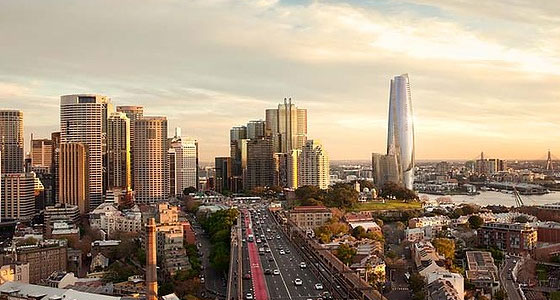
2. Things just aren’t working out for New Jersey lawmakers, who tried to find a way around the nationwide sports wagering ban. America’s biggest sports leagues have scored a point in their battle against betting, and the ball is now in judge Shipp’s court.
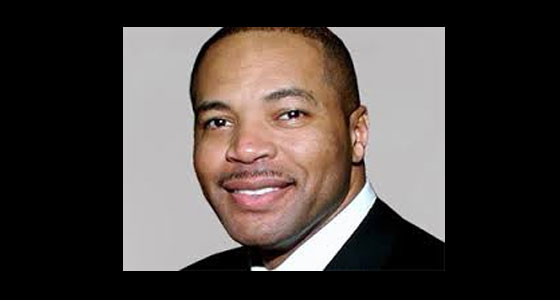
3. A famous conman known for selling fake weight loss products has gotten himself into trouble by running an international betting scheme that brought him a fortune.
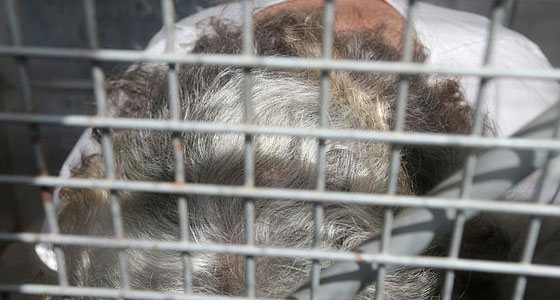
4. The FBI might have screwed up its own case against an Asian betting ring that operated in Las Vegas during the FIFA World Cup, by using illegal methods to gather evidence.
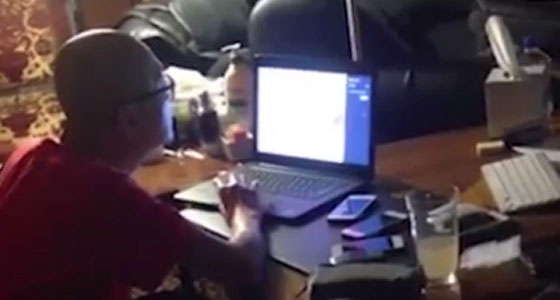
5. GamblingResults found the best five Halloween promotions. Online gambling websites prepared scary-tempting offers past weekend.

6. The FBI is trying to beat criminals at their own game and it’s not working. Alleged gambling kingpin Paul Phua could get away with his illegal betting operation because FBI agents didn’t stick to the rules during their investigation.
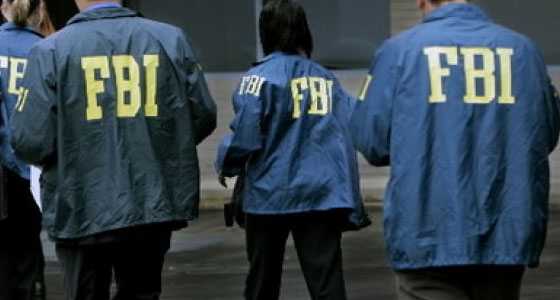
7. The government leadership of Malta settled on Eden Leisure Group as the potential bidders for casino license.
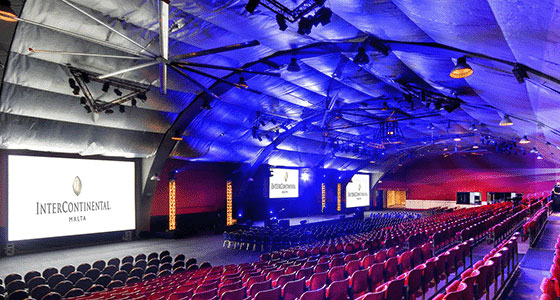
Meanwhile Tim Cook, CEO of Apple came out of the app-draw and announced he was proud to be gay, and the diplomatic relationship between Israel and the US dove to a new all-time low after an unnamed official from the Obama White House was quoted as saying “The thing about Bibi is, he’s a chickenshit.” A move that has been seen as incendiary by the generous of spirit and as the insult it is by everyone else. Will there be more name calling this week? Keep up to date with our daily news pages.



In Burkina Faso protestors in the capital Ouagadougou threw out their President of 27 years after he tried to extend that via a constitutional change. They set fire to the parliament building and the army had to step in to “restore order”. Protestors then took to the streets again to ensure the army didn’t turn peace keeping into a coup, the situation remains tense and disagreement amongst opposition leaders could prove problematic.Problematic is a word all too easily applied to space travel last week as both NASA and Virgin Galactic lost craft to accidents. NASA Antares rocket dramatically exploded shortly after lift off whilst Richard Branson’s Virgin Galactic suffered a catastrophic failure during a test flight that left one pilot seriously injured and the other dead. Early reports cite a malfunction of the descent mechanism may have caused it to prematurely deploy resulting in the tragedy.
South African football weathered a tragedy of its own last week as Captain of the national team, Senzo Meyiwa was shot dead at his girlfriends house after intruders broke into the Johannesburg property. His funeral at the Moses Mabhida Stadium was attended by his teammates from the Orlando Pirates and tens of thousands of supporters. Police already have a suspect in custody and he was charged with the killing on Friday.
Elsewhere in football the weekend saw a Manchester derby in the English Premier League, and as is usual with these high-tension clashes the game saw some ugly moments including the sending off of United’s center-half Smalling who seemed to forget he was playing football, and in the end, Man City got the only, and decisive goal, will things be so clear cut this week? Find out on our daily news pages, but for the time being lets look back at what made our headlines last week.
1. If you thought you knew everything about James Packer’s new VIP casino at Barangaroo, guess again. The government and the investor have been keeping secrets from the public.

2. Things just aren’t working out for New Jersey lawmakers, who tried to find a way around the nationwide sports wagering ban. America’s biggest sports leagues have scored a point in their battle against betting, and the ball is now in judge Shipp’s court.

3. A famous conman known for selling fake weight loss products has gotten himself into trouble by running an international betting scheme that brought him a fortune.

4. The FBI might have screwed up its own case against an Asian betting ring that operated in Las Vegas during the FIFA World Cup, by using illegal methods to gather evidence.

5. GamblingResults found the best five Halloween promotions. Online gambling websites prepared scary-tempting offers past weekend.

6. The FBI is trying to beat criminals at their own game and it’s not working. Alleged gambling kingpin Paul Phua could get away with his illegal betting operation because FBI agents didn’t stick to the rules during their investigation.

7. The government leadership of Malta settled on Eden Leisure Group as the potential bidders for casino license.

Meanwhile Tim Cook, CEO of Apple came out of the app-draw and announced he was proud to be gay, and the diplomatic relationship between Israel and the US dove to a new all-time low after an unnamed official from the Obama White House was quoted as saying “The thing about Bibi is, he’s a chickenshit.” A move that has been seen as incendiary by the generous of spirit and as the insult it is by everyone else. Will there be more name calling this week? Keep up to date with our daily news pages.


15 Charged in Armed Takeover of Central California Casino
Reports say the incident was at the center of a power struggle between factions of a Native American tribe.
Prosecutors have filed charges against 15 people involved in the armed takeover and one of the defendants was arrested by Madera County authorities. Eric Domingo Flores Suniga, 30, was charged with five counts of assault with a stun gun. The other defendants were accused of kidnapping, false imprisonment and assault with a firearm.
According to online gambling news, it all started from a dispute between two rival tribe factions. They fought over who gets control over the Chukchansi Gold Resort and Casino, located northeast of Fresno.
After one tribal group attempted a takeover last month, authorities decided to close the gambling venue. Madera County District Attorney Michael Keitz gave the suspects two options, to either surrender or be arrested, but lawyer David Leibowitz said his clients did nothing illegal and did not endanger the lives of any casino customers.
Associated Press: 15 Charged in Armed Takeover that Closed Casino
Prosecutors have charged 15 people in an armed dispute between two rival factions of the Picayune Rancheria of the Chukchansi Indians, who fought to get control over the Chukchansi Gold Resort and Casino.
More than a dozen people stormed the venue last month, in an armed takeover that sent hundreds of gamblers running for their lives, while their chips were still on the table. Luckily, no one was hurt.
After another suspect was arrested last week, the group’s leader, 64-year-old Tex McDonald, surrendered to the Madera County Sheriff’s Office on Monday. The court set his bail at $1 million.
According to Sheriff John Anderson, three other suspects did the same, but deputies are still looking for the other 10 people charged with kidnapping, assault with a firearm and false imprisonment.
Following a federal court order and the approval of the National Indian Gaming Commission, the casino was shut down and will remain closed until the dispute is settled. The gambling business was an important source of revenue for members of the tribe. It also employed around 1,100 workers.
Fresno Bee: 15 charged with felonies in Chukchansi Gold casino armed confrontation
Madera County District Attorney Michael Keitz announced that 15 people involved in the armed confrontation at the Chukchansi Casino on October 9 have been charged with multiple felonies. Led by Tex McDonald, a faction of the Picayune Rancheria of Chukchansi Indians used firearms to take over the gambling venue from a rival faction overseen by Reggie Lewis and Nancy Ayala.
McDonald, his fellow tribal council member Vernon King and his tribal police chief John Olivera were among those charged with felonies including kidnapping, assault with a firearm, false imprisonment, assault with a deadly weapon, battery inflicting serious injury and assault with a stun gun.
Bail for the group leader was set at $1 million, 13 will have to come up with $800,000 apiece if they want to make bail, and Eric Domingo Flores Suniga was charged with assault with a stun gun, so his was set at just $25,000. In 1992 and 1995, McDonald was taken in for assault with a deadly weapon and making criminal threats.
The two tribal groups have been fighting over the casino for a while now. For most of 2014, the venue was controlled by McDonald and his men, but on August 24 the Lewis group entered the hotel and set up offices on the 10th and 11th floors. Their rivals forced an armed takeover on October 9.
During a hearing in U.S. District Court in Fresno on Wednesday, Judge Lawrence O’Neill referred to a declaration filed by the state Attorney General indicating that at least one member of the Lewis-Ayala security forces was armed with a gun. Other guns were found on the casino grounds, too, in the possession of the Lewis-Ayala faction’s security forces, the declaration said.
According to Madera County district attorney Michael Keitz, if convicted of all charges, the accused could face a “significant amount” of time in prison.
David Leibowitz, a spokesman for the McDonald faction, said: “We fully intend to work cooperatively with the District Attorney’s Office to bring this matter to a quick conclusion and to clear these trained professionals’ and leaders’ names, just as we will continue to pursue justice for the Chukchansi people in the eyes of the law.”
AllGov: Armed Tribal Factions Square off Inside Their Casino
The Chukchansi Gold Resort Casino in Coarsegold was shut down by U.S. District Judge Lawrence J. O’Neill, following an armed dispute between rival factions of the Picayune Rancheria of Chukchansi Indians.
The judge issued an emergency order temporarily closing the place and said that the tribe may have violated its agreement with the state by endangering the health and safety of customers at the casino. He wanted to stop both factions from using force “to change the circumstances currently in effect with respect to the operation of or control over the casino.”
Tribal police and other security personnel have to stay at least 1,000 feet from the gambling venue.
Ever since the casino opened in 2003, tribe members have been arguing and battling. The tribe shrunk from 1,800 to 900 as hundreds have been stripped of their tribal affiliation. Along with their share of casino profits, disenrolled members lose education privileges, as well as health and tax benefits.
Two sides were formed and they both have their own council. After appealing to the US Bureau of Indian Affairs for recognition and being told to work it out themselves, they started to attack each other.
The temporary order issued by Judge O’Neill will be reviewed soon.
Reports say the incident was at the center of a power struggle between factions of a Native American tribe.
Prosecutors have filed charges against 15 people involved in the armed takeover and one of the defendants was arrested by Madera County authorities. Eric Domingo Flores Suniga, 30, was charged with five counts of assault with a stun gun. The other defendants were accused of kidnapping, false imprisonment and assault with a firearm.
According to online gambling news, it all started from a dispute between two rival tribe factions. They fought over who gets control over the Chukchansi Gold Resort and Casino, located northeast of Fresno.
After one tribal group attempted a takeover last month, authorities decided to close the gambling venue. Madera County District Attorney Michael Keitz gave the suspects two options, to either surrender or be arrested, but lawyer David Leibowitz said his clients did nothing illegal and did not endanger the lives of any casino customers.
Associated Press: 15 Charged in Armed Takeover that Closed Casino
Prosecutors have charged 15 people in an armed dispute between two rival factions of the Picayune Rancheria of the Chukchansi Indians, who fought to get control over the Chukchansi Gold Resort and Casino.
More than a dozen people stormed the venue last month, in an armed takeover that sent hundreds of gamblers running for their lives, while their chips were still on the table. Luckily, no one was hurt.
After another suspect was arrested last week, the group’s leader, 64-year-old Tex McDonald, surrendered to the Madera County Sheriff’s Office on Monday. The court set his bail at $1 million.
According to Sheriff John Anderson, three other suspects did the same, but deputies are still looking for the other 10 people charged with kidnapping, assault with a firearm and false imprisonment.
Following a federal court order and the approval of the National Indian Gaming Commission, the casino was shut down and will remain closed until the dispute is settled. The gambling business was an important source of revenue for members of the tribe. It also employed around 1,100 workers.
Fresno Bee: 15 charged with felonies in Chukchansi Gold casino armed confrontation
Madera County District Attorney Michael Keitz announced that 15 people involved in the armed confrontation at the Chukchansi Casino on October 9 have been charged with multiple felonies. Led by Tex McDonald, a faction of the Picayune Rancheria of Chukchansi Indians used firearms to take over the gambling venue from a rival faction overseen by Reggie Lewis and Nancy Ayala.
McDonald, his fellow tribal council member Vernon King and his tribal police chief John Olivera were among those charged with felonies including kidnapping, assault with a firearm, false imprisonment, assault with a deadly weapon, battery inflicting serious injury and assault with a stun gun.
Bail for the group leader was set at $1 million, 13 will have to come up with $800,000 apiece if they want to make bail, and Eric Domingo Flores Suniga was charged with assault with a stun gun, so his was set at just $25,000. In 1992 and 1995, McDonald was taken in for assault with a deadly weapon and making criminal threats.
The two tribal groups have been fighting over the casino for a while now. For most of 2014, the venue was controlled by McDonald and his men, but on August 24 the Lewis group entered the hotel and set up offices on the 10th and 11th floors. Their rivals forced an armed takeover on October 9.
During a hearing in U.S. District Court in Fresno on Wednesday, Judge Lawrence O’Neill referred to a declaration filed by the state Attorney General indicating that at least one member of the Lewis-Ayala security forces was armed with a gun. Other guns were found on the casino grounds, too, in the possession of the Lewis-Ayala faction’s security forces, the declaration said.
According to Madera County district attorney Michael Keitz, if convicted of all charges, the accused could face a “significant amount” of time in prison.
David Leibowitz, a spokesman for the McDonald faction, said: “We fully intend to work cooperatively with the District Attorney’s Office to bring this matter to a quick conclusion and to clear these trained professionals’ and leaders’ names, just as we will continue to pursue justice for the Chukchansi people in the eyes of the law.”
AllGov: Armed Tribal Factions Square off Inside Their Casino
The Chukchansi Gold Resort Casino in Coarsegold was shut down by U.S. District Judge Lawrence J. O’Neill, following an armed dispute between rival factions of the Picayune Rancheria of Chukchansi Indians.
The judge issued an emergency order temporarily closing the place and said that the tribe may have violated its agreement with the state by endangering the health and safety of customers at the casino. He wanted to stop both factions from using force “to change the circumstances currently in effect with respect to the operation of or control over the casino.”
Tribal police and other security personnel have to stay at least 1,000 feet from the gambling venue.
Ever since the casino opened in 2003, tribe members have been arguing and battling. The tribe shrunk from 1,800 to 900 as hundreds have been stripped of their tribal affiliation. Along with their share of casino profits, disenrolled members lose education privileges, as well as health and tax benefits.
Two sides were formed and they both have their own council. After appealing to the US Bureau of Indian Affairs for recognition and being told to work it out themselves, they started to attack each other.
The temporary order issued by Judge O’Neill will be reviewed soon.
Illegal Betting Ring Case Could Fail Due to Procedural Errors by the FBI
Using tricks to take down an illegal betting ring didn’t work for the FBI. Now a high-ranking member of the 14K triad society could slip through its fingers due to “procedural errors.”
Last week, the word got out that FBI agents went into Paul Phua’s apartment at Caesars Palace disguised as cable guys, to gather evidence without a warrant. As more “procedural errors” come to light, the alleged gambling kingpin could get away with his illegal betting operation because the bureau itself broke a few rules while trying to get the bad guy.
US federal agents say Paul Phua Wei-seng is a high-ranking member of Hong Kong’s 14K triad society. Phua and his son Darren Phua Wai-kit have been charged with operating an illegal betting ring from a hotel in Las Vegas, during the 2014 FIFA World Cup. But they could both get away with it because of alleged breach of procedure by the FBI.
According to the latest gambling news, Phua’s lawyers filed a motion to suppress testimony he provided during a police raid, because agents didn’t follow the rules.
South China Morning Post: Procedural errors may kill FBI gambling case involving Asian kingpin Paul Phua
Phua and his son were arrested and charged with operating an illegal gambling ring in Las Vegas, during the World Cup. Now prosecutors have to prove that the two Malaysians used and operated these betting platforms from the luxury suites they rented at Caesars Palace.
Lawyers called the triad allegations unfounded and said the 50 year-old man “absolutely maintains he is innocent of the gambling charges in the United States”. Now they’re also trying to suppress statements where the defendants said Phua held a stake in IBC Bet, one of the largest betting operations in the Philippines.
Before obtaining these statements, police allegedly violated the defendants’ constitutional rights by failing to give a so-called Miranda warning, which informs suspects that they have the right to remain silent during an interrogation, until they get legal advice.
The two Malaysian men said they were staying at a villa which was offered to them free of charge by Caesars Palace. The motion says their defense lawyer was not allowed to meet them while they were being questioned.
In his affidavit, Phua wrote: “The first agent I saw pointed a machine gun at me and shouted, ‘Put your f*ing hands up’. Everyone in the villa was handcuffed, herded into the dining room, and told to get on our knees and face the wall.”
Before the World Cup, several illegal bookmakers have been arrested in Southeast Asia. Dozens of people were charged with breaking gambling laws by running unlicensed sports wagering services. Some of them pointed to IBC.
PokerNews: Did Caesars Palace and the FBI Collude in the Arrests of Paul Phua?
This July, eight people were arrested at Caesars Palace Las Vegas for being involved in an illegal betting ring. Among those arrested was 50-year-old Malaysian high-stakes poker player and alleged high-ranking member of the 14K Triad Paul Phua.
The arrests were part of an FBI sting and Phua’s lawyers claim the defendants’ Fourth Amendment rights were violated because the raid was conducted under an unlawful search warrant.
Investigations began this summer, when the defendants rented the villas and asked the casino staff for an “unusual amount of electronic equipment”. According to newspaper reports, the venue’s security personnel became suspicious and called the FBI, then worked together with agents to cut off Internet access to have an excuse to send undercover agents inside.
Posing as service technicians, FBI agents gained access to the villas and collected evidence to obtain a warrant in court. The defense argued that the warrant was obtained through an unlawful scheme.
“A ruling upholding these intrusions would cause innocent Americans to live their daily lives burdened with the palpable sense that their government is regularly scheming to spy on them in their homes,” lawyers said.
The federal government is expected to respond soon.
GamingZion: Gambler, Bookie, Diplomat, Gangster: the Fantastic Story of Paul Phua Wei-seng
Each year, illegal betting generates billions of dollars for criminal syndicates around the world. The largest scandal this year was when the FBI busted an operation run from two villas at the Caesars Hotel in Las Vegas. The head of the operation, reports said, was Paul Phua, a high-stakes poker player, former diplomat and alleged gangster.
Less than one month before being caught in Vegas, he had faced the same charges in Macau but posted bail and fled from the city. Newspapers said he flew straight to Sin City and continues his illegal business from here.
In addition to being a suspected black market bookmaker, Phua is also a legitimate businessman, owner of Sat Ieng Sociedade Unipessoal junket in Macau, where he likes to take a personal interest in entertaining his customers. He also holds a majority stake in IBC Bet, a company based in the Philippines which has grown to become one of the world’s most profitable sportsbooks.
From 2011 until his arrest in Las Vegas, Phua also held the title of San Marinese ambassador to Montenegro, although reports say he never properly checked in with the authorities in Podgorica, but did gain the advantage of traveling freely almost anywhere.
Phua is known in the world of high-stakes poker too. He makes regular appearances at the Poker King Club in Macau, and in 2012 he played in the $1 million buy-in tournament at the World Series of Poker.
Federal investigators say he is also a high-ranking member of the 14K triad, thought to be one of Hong Kong’s oldest and most powerful criminal organizations. It remains to be seen if the case against him stands or not, given the procedural errors committed by the FBI.
Using tricks to take down an illegal betting ring didn’t work for the FBI. Now a high-ranking member of the 14K triad society could slip through its fingers due to “procedural errors.”
Last week, the word got out that FBI agents went into Paul Phua’s apartment at Caesars Palace disguised as cable guys, to gather evidence without a warrant. As more “procedural errors” come to light, the alleged gambling kingpin could get away with his illegal betting operation because the bureau itself broke a few rules while trying to get the bad guy.
US federal agents say Paul Phua Wei-seng is a high-ranking member of Hong Kong’s 14K triad society. Phua and his son Darren Phua Wai-kit have been charged with operating an illegal betting ring from a hotel in Las Vegas, during the 2014 FIFA World Cup. But they could both get away with it because of alleged breach of procedure by the FBI.
According to the latest gambling news, Phua’s lawyers filed a motion to suppress testimony he provided during a police raid, because agents didn’t follow the rules.
South China Morning Post: Procedural errors may kill FBI gambling case involving Asian kingpin Paul Phua
Phua and his son were arrested and charged with operating an illegal gambling ring in Las Vegas, during the World Cup. Now prosecutors have to prove that the two Malaysians used and operated these betting platforms from the luxury suites they rented at Caesars Palace.
Lawyers called the triad allegations unfounded and said the 50 year-old man “absolutely maintains he is innocent of the gambling charges in the United States”. Now they’re also trying to suppress statements where the defendants said Phua held a stake in IBC Bet, one of the largest betting operations in the Philippines.
Before obtaining these statements, police allegedly violated the defendants’ constitutional rights by failing to give a so-called Miranda warning, which informs suspects that they have the right to remain silent during an interrogation, until they get legal advice.
The two Malaysian men said they were staying at a villa which was offered to them free of charge by Caesars Palace. The motion says their defense lawyer was not allowed to meet them while they were being questioned.
In his affidavit, Phua wrote: “The first agent I saw pointed a machine gun at me and shouted, ‘Put your f*ing hands up’. Everyone in the villa was handcuffed, herded into the dining room, and told to get on our knees and face the wall.”
Before the World Cup, several illegal bookmakers have been arrested in Southeast Asia. Dozens of people were charged with breaking gambling laws by running unlicensed sports wagering services. Some of them pointed to IBC.
PokerNews: Did Caesars Palace and the FBI Collude in the Arrests of Paul Phua?
This July, eight people were arrested at Caesars Palace Las Vegas for being involved in an illegal betting ring. Among those arrested was 50-year-old Malaysian high-stakes poker player and alleged high-ranking member of the 14K Triad Paul Phua.
The arrests were part of an FBI sting and Phua’s lawyers claim the defendants’ Fourth Amendment rights were violated because the raid was conducted under an unlawful search warrant.
Investigations began this summer, when the defendants rented the villas and asked the casino staff for an “unusual amount of electronic equipment”. According to newspaper reports, the venue’s security personnel became suspicious and called the FBI, then worked together with agents to cut off Internet access to have an excuse to send undercover agents inside.
Posing as service technicians, FBI agents gained access to the villas and collected evidence to obtain a warrant in court. The defense argued that the warrant was obtained through an unlawful scheme.
“A ruling upholding these intrusions would cause innocent Americans to live their daily lives burdened with the palpable sense that their government is regularly scheming to spy on them in their homes,” lawyers said.
The federal government is expected to respond soon.
GamingZion: Gambler, Bookie, Diplomat, Gangster: the Fantastic Story of Paul Phua Wei-seng
Each year, illegal betting generates billions of dollars for criminal syndicates around the world. The largest scandal this year was when the FBI busted an operation run from two villas at the Caesars Hotel in Las Vegas. The head of the operation, reports said, was Paul Phua, a high-stakes poker player, former diplomat and alleged gangster.
Less than one month before being caught in Vegas, he had faced the same charges in Macau but posted bail and fled from the city. Newspapers said he flew straight to Sin City and continues his illegal business from here.
In addition to being a suspected black market bookmaker, Phua is also a legitimate businessman, owner of Sat Ieng Sociedade Unipessoal junket in Macau, where he likes to take a personal interest in entertaining his customers. He also holds a majority stake in IBC Bet, a company based in the Philippines which has grown to become one of the world’s most profitable sportsbooks.
From 2011 until his arrest in Las Vegas, Phua also held the title of San Marinese ambassador to Montenegro, although reports say he never properly checked in with the authorities in Podgorica, but did gain the advantage of traveling freely almost anywhere.
Phua is known in the world of high-stakes poker too. He makes regular appearances at the Poker King Club in Macau, and in 2012 he played in the $1 million buy-in tournament at the World Series of Poker.
Federal investigators say he is also a high-ranking member of the 14K triad, thought to be one of Hong Kong’s oldest and most powerful criminal organizations. It remains to be seen if the case against him stands or not, given the procedural errors committed by the FBI.
FBI Agents Trick Betting Ring Members to Gather Evidence
After cutting off Internet access three Las Vegas luxury villas, FBI agents impersonated repair technicians to get inside and collect evidence.
Against the recommendation of an assistant U.S. attorney, Kimberly Frayn, the FBI went ahead with its plans and pretended to be repair technicians in order to get inside the villa. But lawyers representing four of the eight men charged in the case have filed a motion to dismiss all evidence collected that day. The prosecutor supposedly told FBI agents that “it was a consent issue.”
Under American laws, authorities need a warrant before searching a property, so defense lawyers challenged the actions described in detail by online gambling news, which were part of an investigation on an illegal sports betting operation.
If authorities don’t have the written permission, the person whose property is being inspected must first waive his constitutional protections against unreasonable searches. Otherwise, the evidence should not be used in trial, because it was improperly collected.
Fox News: Federal agents impersonated computer technicians to collect evidence in sports betting probe, lawyers say
FBI agents in Las Vegas had referred questions about their plan to the local US Attorney’s Office. Spokeswoman Natalie Collins said prosecutors were aware of the allegations, but declined to make any comments while the trial was pending.
According to American newspapers, the Drug Enforcement Administration set up a fake Facebook account, where it posted personal information and photos taken from the phone of a woman who had been arrested in a cocaine case. The idea was to trick her friends and associates into revealing incriminating information.
On another occasion, the FBI sent a fake news story to a suspect in a bomb-threat case, hoping he would click on the link thus allowing investigators to track down his location. The FBI had attributed the story to the Associated Press, causing the agency to react and describe the actions as “unacceptable”, claiming they undermined the publication’s credibility.
As for the gambling case, the criminal complaint revealed that the eight men came to the attention of authorities in June after requesting “an unusually large amount of electronics equipment and technical support” at their hotel. An electrical engineer working for the Las Vegas hotel said the equipment “appeared to be set up for an illegal gambling operation.”
FBI investigators tried to get into their apartment to gather evidence, but a former federal prosecutor, Mark Rasch, said the tactics they resorted will most likely not stand up in court. “Police are allowed to use a certain kind of subterfuge, but what they can’t do is create a certain kind of circumstance,” he said.
South China Morning Post: Dramatic FBI video shows how agents tricked their way into Paul Phua’s villa for gambling bust
Newspapers got their hands on 30 minutes of audio and video recordings of the FBI’s action plan to bust what appeared to be an illegal online betting operation in Las Vegas. The video was filmed through a lapel camera and shows how agents tricked their way into the villas where an alleged Asian gambling kingpin and his team were staying.
According to the defense, FBI agents shut off Internet access to Paul Phua Wei-seng’s villa at Caesars Palace, and then gained access to it by impersonating repair technicians. This is how authorities managed to collect the evidence used against the accused.
In the video obtained by the press, investigators are working on a set of code words to use while they were inside. One agent who adopted the name “Sam” – which he also used “for other stuff” in the past – is shown working on his cover story. The images briefly show another conversation about how investigators should dress.
“If you put on that shirt, you have to look the part. Go all the way,” said Mike Wood, a technician working for Caesars. He was advising Nevada Gaming Control Board Agent Ricardo Lopez before he entered one of the suites, on July 4. Lopez went back to the villa on July 5, when he pretended to fix an internet outage for several minutes.
Defense lawyer Thomas Goldstein described the operation as an “illegal search” and challenged the evidence in court.
CardsChat: Paul Phua Sports Betting Raid FBI Tactics Questioned by Legal Team
The FBI suspected that the eight men who rented villas at Caesars Palace were breaking the state’s gambling laws by running an unlicensed betting operation. Investigators spent two days working with the hotel’s computer contractor and the Nevada Gaming Control Board on shutting down their Internet access.
But they did not stop here. FBI agents impersonated repair staff to convince the customers to let them inside the apartments, and they even recorded what they found inside. The videos were the main evidence used to obtain the arrest warrant against the eight defendants.
Lawyers did not know how authorities had managed to get inside the suites until they overheard an official talk about cutting the Internet access. “They were trying everything they could to get inside without a warrant,” defense attorney Thomas Goldstein told reporters. Four out of the eight defendants have challenged the FBI’s actions in court.
Paul Phua and his son Darren were among those arrested. They were all charged with operating an illegal sports betting operation. Officials said Paul Phua is a high-ranking member of the 14K Triad, one of the world’s largest organized crime syndicates. Among gamblers, he is well-known for playing in high-stakes poker games in Macau, as well as in tournaments.
The poker community has supported the accused, and players Phil Ivey and Andrew Robl even offered $2.5 million towards Phua’s and his son’s bonds.
After cutting off Internet access three Las Vegas luxury villas, FBI agents impersonated repair technicians to get inside and collect evidence.
Against the recommendation of an assistant U.S. attorney, Kimberly Frayn, the FBI went ahead with its plans and pretended to be repair technicians in order to get inside the villa. But lawyers representing four of the eight men charged in the case have filed a motion to dismiss all evidence collected that day. The prosecutor supposedly told FBI agents that “it was a consent issue.”
Under American laws, authorities need a warrant before searching a property, so defense lawyers challenged the actions described in detail by online gambling news, which were part of an investigation on an illegal sports betting operation.
If authorities don’t have the written permission, the person whose property is being inspected must first waive his constitutional protections against unreasonable searches. Otherwise, the evidence should not be used in trial, because it was improperly collected.
Fox News: Federal agents impersonated computer technicians to collect evidence in sports betting probe, lawyers say
FBI agents in Las Vegas had referred questions about their plan to the local US Attorney’s Office. Spokeswoman Natalie Collins said prosecutors were aware of the allegations, but declined to make any comments while the trial was pending.
According to American newspapers, the Drug Enforcement Administration set up a fake Facebook account, where it posted personal information and photos taken from the phone of a woman who had been arrested in a cocaine case. The idea was to trick her friends and associates into revealing incriminating information.
On another occasion, the FBI sent a fake news story to a suspect in a bomb-threat case, hoping he would click on the link thus allowing investigators to track down his location. The FBI had attributed the story to the Associated Press, causing the agency to react and describe the actions as “unacceptable”, claiming they undermined the publication’s credibility.
As for the gambling case, the criminal complaint revealed that the eight men came to the attention of authorities in June after requesting “an unusually large amount of electronics equipment and technical support” at their hotel. An electrical engineer working for the Las Vegas hotel said the equipment “appeared to be set up for an illegal gambling operation.”
FBI investigators tried to get into their apartment to gather evidence, but a former federal prosecutor, Mark Rasch, said the tactics they resorted will most likely not stand up in court. “Police are allowed to use a certain kind of subterfuge, but what they can’t do is create a certain kind of circumstance,” he said.
South China Morning Post: Dramatic FBI video shows how agents tricked their way into Paul Phua’s villa for gambling bust
Newspapers got their hands on 30 minutes of audio and video recordings of the FBI’s action plan to bust what appeared to be an illegal online betting operation in Las Vegas. The video was filmed through a lapel camera and shows how agents tricked their way into the villas where an alleged Asian gambling kingpin and his team were staying.
According to the defense, FBI agents shut off Internet access to Paul Phua Wei-seng’s villa at Caesars Palace, and then gained access to it by impersonating repair technicians. This is how authorities managed to collect the evidence used against the accused.
In the video obtained by the press, investigators are working on a set of code words to use while they were inside. One agent who adopted the name “Sam” – which he also used “for other stuff” in the past – is shown working on his cover story. The images briefly show another conversation about how investigators should dress.
“If you put on that shirt, you have to look the part. Go all the way,” said Mike Wood, a technician working for Caesars. He was advising Nevada Gaming Control Board Agent Ricardo Lopez before he entered one of the suites, on July 4. Lopez went back to the villa on July 5, when he pretended to fix an internet outage for several minutes.
Defense lawyer Thomas Goldstein described the operation as an “illegal search” and challenged the evidence in court.
CardsChat: Paul Phua Sports Betting Raid FBI Tactics Questioned by Legal Team
The FBI suspected that the eight men who rented villas at Caesars Palace were breaking the state’s gambling laws by running an unlicensed betting operation. Investigators spent two days working with the hotel’s computer contractor and the Nevada Gaming Control Board on shutting down their Internet access.
But they did not stop here. FBI agents impersonated repair staff to convince the customers to let them inside the apartments, and they even recorded what they found inside. The videos were the main evidence used to obtain the arrest warrant against the eight defendants.
Lawyers did not know how authorities had managed to get inside the suites until they overheard an official talk about cutting the Internet access. “They were trying everything they could to get inside without a warrant,” defense attorney Thomas Goldstein told reporters. Four out of the eight defendants have challenged the FBI’s actions in court.
Paul Phua and his son Darren were among those arrested. They were all charged with operating an illegal sports betting operation. Officials said Paul Phua is a high-ranking member of the 14K Triad, one of the world’s largest organized crime syndicates. Among gamblers, he is well-known for playing in high-stakes poker games in Macau, as well as in tournaments.
The poker community has supported the accused, and players Phil Ivey and Andrew Robl even offered $2.5 million towards Phua’s and his son’s bonds.















